#they want to use Hollywood rankings as a stand in but the thing is those are very mutable
Explore tagged Tumblr posts
Text
"Prince Harry and Meghan Markle cannot go to a film or sporting event without thousands of words being written about whether or not they should be hated for doing it...
"Because the site has no new information about the couple, the articles focused on the domain name itself. Were the couple allowed to use 'Sussex' if it originated as a royal title and they are no longer working royals?
"...Also: who cares?
"The answer is that millions of people do. A former writer at Star Magazine noted in an interview with me that 'coverage is all about clicks, and the truth of the matter is that Harry and Meghan generate clicks.'
"An editor at a supermarket weekly, who also spoke on condition of anonymity, told me that 'people love to hate them — and really, they love to hate her.'
“...'She’s actually not that offensive,' he continued, 'so people keep looking for reasons to hate her rather than acknowledge how ugly and racist they are for hating her. They invent reasons that are often not even grounded in reality."
#meghan the duchess of sussex#sussex hate campaign watch#I need to write a post on the obsession with her engagement ring from all the people who think she doesn't deserve her marriage#and another post on how brits are obsessed with calling her a C-List actress because they don't understand class in America#they want to use Hollywood rankings as a stand in but the thing is those are very mutable#and Meghan might not have been a very big deal in the Suits days but she is one hundred percent A-list now#they just...can't...wrap their heads around it#Americans celebrate a success story and we don't punish 'social climbers' like you weirdos
1 note
·
View note
Note
That doesn't mean much, Antony at 4 years old has an impeccable performance and has never been nominated, it's not enough to just have talent, there's a lot of politics in these awards
I will heavily disagree with you on that one.
To be considered for nomination an actor must first be entered by his team (submitted), then, based on their performance, they might or might not make the cut into an actual nomination.
Also, I can't for the life of me figure out which 4 year old actor you are referring to. Maybe you are missing a digit on the age?
Politics don't apply to Hollywood. There is a hierarchy and that is important so if someone wants to jump tiers and reach Emmy nominee status they better give their soul in their performance. There is a reason things are structured a certain way and it is because they want to ensure the worthy and capable make it through.
Aside from this, let's please stop excusing subpar actors by using "politics" as an excuse. Even if the entire world was on Jensen's side, he still is subpar for Emmy level and, therefore, would have not made the cut. His iconic face is lovely but you have to be an extraordinary actor if you want to be acknowledged as one. Let's stop enabling those that are lessening the craft's quality, please. People deserve to be inspired by the best. The more we wallow in mediocrity the more society will keep from evolving. All those people you see nominated there are constantly, constantly training. Has Jensen ever even taken an acting class? Then why does he expect a pat on the back? If you want to be ranked among the greatest and stand on the shoulders or giants you need to bring real weight. Acting is extremely competitive, this is why even the greatest train constantly and when they do, results never fail to appear.
12 notes
·
View notes
Text
7 Things About IPTV CANADA You'll Kick Yourself for Not Knowing
™
It want to had been fate that Bryan Singer may perhaps direct the recent movie Superman Returns, the fifth contained in the collection of Superman motion shots. Singer loved the George Reeves Superman TV selection whilst he turned into younger, and was a wide fan of the Dick Donner-directed motion pictures from the 70s and 80s that starred Christopher Reeves given that the Man of Steel. I title with Superman. I am adopted, I am an honestly toddler, and I love the inspiration that he comes from a added worldwide, that he’s the finest immigrant. He has a considerable number of those particular powers, and he has a righteousness approximately him, said Bryan.
After attending the School Of Visual Arts in New York City (yet now not graduating), he graduated from the USC cinema tuition (the region, incidentally, he met John Ottman who wrote the ranking for Superman Returns), Singers first commercial fulfillment used to be because the manufacturer/director of The Usual Suspects in 1995.That film observed him paintings with Kevin Spacey for the primary time, and Singer and Spacey are re-united, once again in Superman Returns, as Spacey performs arch villain Lex Luther, simply out of jail and all over again set to rule the part.
youtube
However, it honestly is as an adapter of comedian books, bringing superheroes to life, that Singer has carved a gap for himself contained in the film international.
In 2000, as author and director, he released Wolverine, Magneto and the chill out of the X-Men to the motion photo international in a greatly extraordinary IPTV PROVIDER adaptation, before than reprising the characters within the observe-up, X2. Singer left the X-Men franchise to strengthen Superman Returns and did now not work at the 1/3 film The Last Stand.
Now an established player in Hollywood with lots of enormous projects lined up for the long term, who might guess against his time-honored being the lately-introduced sequel for Superman Returns in 2009?
Filmography
Superman Returns (2006) (manufacturer/director/author)
X2 (2003) (executive brand/director/writer)
X-Men (2000) (director/publisher)
Apt Pupil (1998) (producer/director)
Burn (1998) (govt manufacturer)
The Usual Suspects (1995) (producer/director)

Public Access (1993) (govt company/director/author)
Lion’s Den (1988) (director)
1 note
·
View note
Text
Battle Royale (2000) Review
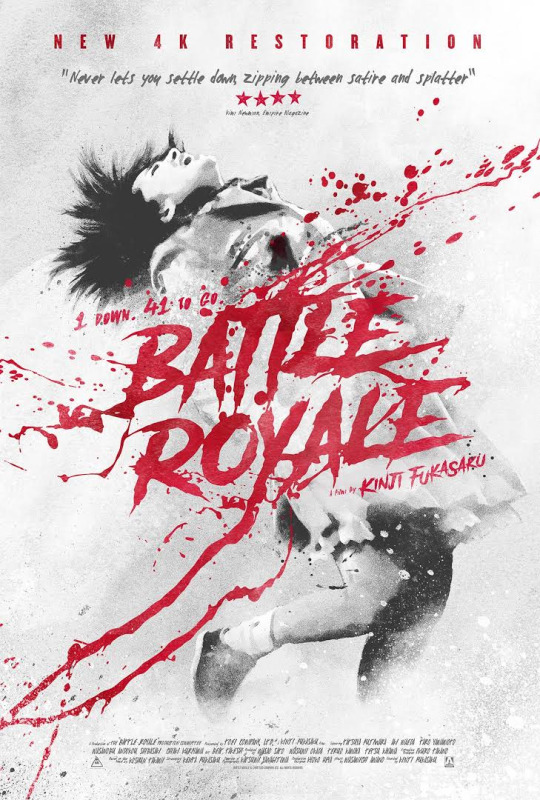
Was watching a video where Quentin Tarantino was ranking his favourite films that were released between 1992 and 2009 (don't ask why specifically between that period but hey ho) and Battle Royale was on the top of that list. Naturally, I had to check it out, and also boutique Blu-Ray publishers Arrow Video had a snazzy special edition of it available, so one thing led to another, the old bank account was squeezed a little and here we are.
Plot: 42 9th graders are sent to a deserted island. They are given a map, food, and various weapons. An explosive collar is fitted around their neck. If they break a rule, the collar explodes. Their mission: kill each other and be the last one standing. The last survivor is allowed to leave the island. If there is more than one survivor, the collars explode and kill them all.
The best way to put it is Battle Royale is the superior version of The Hunger Games. In fact, judging from the latter being released more recently, Hunger Games straight up ripped off Battle Royale, and shamelessly so. However, Hunger Games, for its big budget and all is actually relatively primitive and bland looking compared to its inspiration. Apologies for the upcoming Ballad of Songbirds and Snakes prequel, but I shall not be tuning it for that obvious Hollywood cash-grab, no matter how adorable Jason Schwartzmann's puppy-dog face is.
Battle Royale isn't an expensive-looking movie. In fact there are a lot of cheap shots and simple set pieces, and even the performances from many of the cast come off as over-the-top and corny, however, it is the collective package that makes it pop. It's a film that features such a shockingly taboo subject, yet because it doesn't shy away from this premise, it results in a very successful Japanese thriller. The hypothetical idea of one of the most traumatic things that could happen to a bunch of teenagers - needing to kill one another in the name of survival. And seeing each character's personality and their response to this awful situation is actually pretty fascinating. There are naturally those who blatantly refuse to partake and, like regular innocent minds should, simply cannot contemplate the idea of wanting to take another human being's life. Then some seem to find the transition into becoming murderers as simple as clicking your own fingers. I say that, however, my fiancee seems to struggle with clicking her fingers part so maybe it can be a difficult feat for some, but for most of us clicking fingers is an easy task. Heck, it's nothing compared to whistling. Now how the hell do some people do that? That's just a whole new level of.... but I digress. Looking at our modern-day youth, with the chavs and whatnot, to be fair seeing them resort to killing someone isn't all too far-fetched, and that is terrifying. However, in the film some of the murderers have their reasons to be so, like for example the class-loner who at school was ignored and bullied, so naturally this situation allows her to free herself and take control of her life. There's also the factor of how the film plays out as a social commentary piece on Japanese youth culture, and as such isn't a surprise that at the time of release, it was hit by a huge backlash from the government who feared riots and that it would incite mayhem from its populace.
As a fan of Tarantino, naturally Battle Royale was an enjoyable watch for me, and you can tell that Quentin himself was inspired by this and other works of director Kinji Fukasaku, as evident from Kill Bill Vol. 1 and 2. There were plenty of exciting and shocking kills, and loads of blood and gore that looked like paint, but it was stylistic so that's cool. There were plenty of ace sweeping shots of the island and the waves triumphantly hitting against the rocks, and all this was accompanied by a superb classical score, that added that feel of magnificence. Speaking of music, it was strange how throughout all the gore and brutal madness there were still moments of tenderness accompanied by piano music, and in those moments it was as if I was watching a Studio Ghibli animation, not that I was complaining. There's also a self-aware element of humour, through the way certain characters act to the situations that transpire, it's as if the movie is fully aware of its ludicrous premise and fully plays up to it.
Additionally, in these kinds of films where everyone needs to kill one another, its very common to for there to be a lack of care for any of the characters. However I must say that the movie does go out of its way to make you sympathize with some of them, and I found myself actually caring for some of them and getting upset whenever one I was rooting for bit the dust. Overall Battle Royale is a film that works due to how much it is unafraid of its own subject matter and has no fear of being limited to what is or isn't taboo. And again, if you enjoy Tarantino films then this is right up your alley - an over-the-top violence fest that features artistic filmmaking balanced with moments of cringe. It's a great time and a stand-out amongst Arrow Video's collection.
Overall score: 8/10
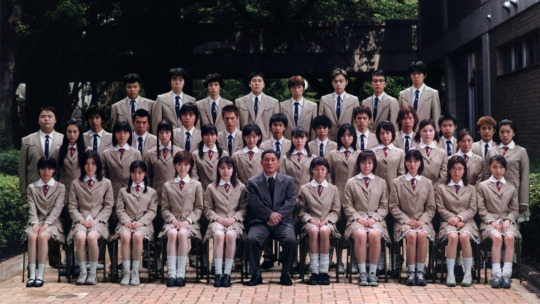
#battle royale#2000#movie#film#filmmaking#drama#film reviews#movie reviews#action#thriller#cinema#adventure#game of survival#social commentary#arrow video#kinji fukasaku#hunger games#battle royale review#japanese cinema#Tarô Yamamoto#Tatsuya Fujiwara#Aki Maeda#Chiaki Kuriyama#quentin tarantino#2000 films#2000 in film
1 note
·
View note
Text
Choices Years Ranked
1. 2017. Most people in the fandom agree that 2017 was Peak Choices™️. It’s when a lot of the best books were initially released or were still airing, like Endless Summer, The Crown & The Flame book 3, and later on in the year, It Lives in the Woods. Endless Summer in particular got a lot of people’s attention because of how it used the friendship system, the clue system, and how it took risks in its storytelling. The staff were also regularly interacting with the playerbase (particularly on Tumblr) in 2017, and since it was still in the early days of the app, the writers weren’t burned out and the staff actually took into account what players wanted. At least, more than they do nowadays. 2017 was truly a different era.
2. 2018. Unfortunately, 2018 got a pretty rotten start because some of the series released at the tail end of 2017 (namely RCD and HFTH) were received very poorly. Things picked back up in February, though, because Perfect Match and Bloodbound came to the rescue, and at the start of the summer, Veil of Secrets came along, too. Admittedly, there were a lot of flops and really mediocre series that came from 2018, but when The Elementalists came out in October followed by The Heist: Monaco in December, the year ended on a very satisfying note, effectively setting 2019 up for a good start.
3. 2016. Offering Most Wanted, The Freshman, and The Crown & The Flame as its starting books that came with the app’s initial release in August, Choices had a solid start. By this time, most of the playerbase had migrated over from High School Story or Hollywood U, giving Choices a try because Pixelberry advertised it in those two games. It was also the only time in Choices history that romance books were outnumbered by other genres (1:2). The writing was solid and the stories were interesting without being overly cheesy or cliched, which made Choices stand out in comparison to other story apps like Episode. There was actually one point where a community creator on episode plagiarized The Freshman and posted the whole thing to Episode. Choices had a modest start, but it was certainly enjoyable, even though its first weekly releasing book Rules of Engagement ended up being a flop.
4. 2019. Even though 2018 ended well, 2019 did not have a good start. Ride or Die was released in January, the first book of the year, and caused a HUGE stir in the fandom. To this day, it’s still the most polarizing book in Choices. Unfortunately, aside from the first book of Open Heart, most of the series released in 2019 were extremely mediocre. It was apparent the writers were overworked and burned out at this point. To summarize 2019, the good books were great, and the bad books were BAD.
5. 2020. 2020 was unfortunately one or two amazing books (looking at you, Blades) with a slew of mediocre books and one or two AWFUL books. That is all.
6. 2021. And I’m sure this surprises literally no one, but 2021 Choices is the worst year yet. Non-VIPs are fed scraps and given VIP leftovers (which, with the exception of WEH and maaaaaybe AVSP, haven’t been any good) and left to muscle through bland books that spout the same recycled plot formulas or tired smutty cliches at us. Will 2022 be any better? I fucking doubt it.
#choices stories you play#playchoices#choices stories we play#pixelberry#pixelberry studios#playchoices fandom#choices stories you play fandom#choices stories we play fandom
52 notes
·
View notes
Note
Did we ever get the freaky colson fic? Asking for a friend
Yenno what? I’ve been practically starving yall so i think you earned it. Ask (for a friend) and you shall receive. Buckle up kiddos, this ones a doozy.
TW?: Like? everything. everything is a problem here lmao. Just weird. H/A stands for haunted attraction, i had one in mind but it felt disrespectful to mention.
I present to you... The Freaky Fic ™
~*~*~
You knew this interviewer had a history of asking personal questions, which meant when you came on you were completely expecting to be asked something or other in regards to you and Colsons sex life, but asking about the freakiest sex you’ve ever had still felt a little forward. You weren’t thirty minutes into what would be an hour-and-forty-three-minute podcast and he was already pulling out what you originally thought to the big guns. Your eyes met Colsons as you silently tried to decide whether or not you should avoid the question.
“I already know what it would be, I'm just not sure we should say.”
“It’s that bad?” The interviewer asks
“Well, it’s more that everyone is gonna say its white people shit. Cause it is.” You took a moment to think about the statement “It wasn’t incest though! Obviously. Just a little weird.”
“What was it?” Colson asked, mind reeling through your personal kama sutra for anything that would stand out as the freakiest. Colson and you were definitely not vanilla, but that was the problem, wasn’t it? When you’ve done so much weird stuff, it’s hard to rank which would be the weirdest.
“The [H/a].” You say, watching as a flash of recognition falls over his face
“Seriously? That’s the worst thing you could think of? Cause I can think of, like, five worse than that, just off the top of my head.”
“I mean, it’s definitely not the freakiest, but it’s a good story without it being super embarrassing or personal.” Colson nods in agreement, mumbling a small “Right”
“Yeah, go ahead. You can tell it.” He says, turning to face you in his spinny chair.
“Okay, so, I’m very superstitious and, like, paranoid right? I mean, I literally will not sleep in a room that has a mirror facing me. It doesn’t even have to be facing me, it could be facing the wall opposite me, but it has to be covered. I don’t even really trust it when it’s covered, honestly, I prefer it to be face down to the floor. Because mirrors are supposed to be portals to the after life, or whatever, and I remember hearing that if one is facing you while you sleep it’s easier for ghosts to manipulate you. It’s not that I necessarily believe that, or that I think if I slept with a mirror facing me that I’d die or something, but that I respect it. However, I think when places are advertised as haunted they usually aren’t. I mean you see these youtubers go to these places and film all these videos and it’s just- That’s not how hauntings usually are. Ghosts have an ability, to an extent, to manipulate your emotion. Have you ever heard of someone suddenly being overwhelmed by an emotion because they believe a loved one is near? It’s more like that, it’s very spiritual. Being haunted, coming from someone who ghosts seem to love, is nine times out of ten nothing like what Hollywood portrays it to be. It’s not to say that I think every one of these youtubers is lying, I think some of them definitely are, or that they were scared and when you’re scared it’s easy to blow little noises out of the water, but mostly I think it has to do with the places themself.”
Your story was cut off by the interviewer asking a question,
“Hold on, you aren’t about to make a joke about freaky also meaning spooky, right?” The interviewer asks
“I mean, you could totally make that joke, but it’s definitely a little kinky. I’m just giving some background.”
“Okay, continue.”
“Where was I? Oh, yes. I think when you go somewhere that is advertised as haunted they are selling you an experience. If you went to the [H/a] and nothing happened, some people would be disappointed by that and would want their money back, right?”
“Absolutely.”
“I think some of these places have audio recordings and mechanised doors, things that they can use to manipulate every room and give you a good scare. This is all theory, by the way, so don’t sue us.”
“You really think it's more plausible that they have a whole control room to scare people and that none of the workers have ever squealed than believe that these places are just… haunted?” The interviewer asked
“I don’t know. Maybe, if they only allowed people with a certain seniority and made them sign an NDA? And if the ones who control it get to give their coworkers a little scare so they come online and say they’ve had their own experiences? Yeah, I think it makes sense, and it's making them money, so why would they stop?”
“Okay, I guess.” He nodded along, entertaining the idea
“But, I also believe that if you talk to ghosts or call on them they will show up, so it’s kinda” you made a scale motion with your hands before continuing.
“Anyway, I went on board with this in mind. We were in our room, cuddled up on the bed and-” you took a moment to recall that night “I don’t remember if we were waiting for something to happen, or if it already had and we were waiting for something else. Anyway, we must’ve gotten bored, because we started making out.”
The crappy old hotel sheets shifted under you as your lips met Colsons, his warm hand reaching over to rest on your lower back. The kiss quickly became heated, your mouths smashing into one another, his tongue swiping across your bottom lip while his hand pulled you closer, your own reaching down to rub his growing bulge.
A short, fast knock came from the wall, breaking both the kiss and the silence.
“Oh, do you like that?” You ask, continuing to massage him through his loose sweatpants. Colson originally thought you had been referring to him, but quickly caught onto the fact that you were addressing the ‘ghost’.
“Hm, what about this?” You continued, kissing your way down his body, pulling his pants down when you got to them and sliding his tip between your lips. A barely audible creak erupted from the room beside you, the bathroom sink had turned on, a small stream of water pouring aimlessly down into the sink.
“Does that make you wet?” You ask, sucking one of his balls into your mouth as you stroke him. Colson found the whole act to be a bit odd, but you seemed to be enjoying yourself, so he let you continue. As fucked up as it was, the idea of a third party watching as the two of you were doing your thing was really getting you going. It wouldn’t have been a big deal to some, other than the fact that the supposed third party was a ghost.
“Do you like watching us fuck?” You slid your mouth down the length of his prick, hollowing out your cheeks before coming back up to continue “Tell me what you want me to do to him next.” You offer up, glancing up at Colson who looked equal parts freaked out and turned on.
“You’re crazy. God that’s hot.” He said, throwing his head back while you let out a small laugh. A book slides from the coffee table across the room, falling to the floor and landing on its spine, flipping open to a random page. You weren’t entirely sure what that implied, but the only thing that came to mind was him fucking you on that table. You took a moment to ponder it before deciding if you tried it would break and that you didn’t wanna bother paying the place for a new one.
You began kissing your way back up his body instead, admiring his tattoos as you go. Your lips landed back on his, reaching down to slide the tip of his prick through your folds, gathering your arousal. Stopping the kiss for a moment, you opened your mouth to take a breath. Colson took this opportunity to spit in your mouth, connecting your lips again soon after.
“Think the ghost liked that?” He said, reaching down to grab his hard dick from your hand, teasing your hole. You shrugged, leaning back into the kiss, moving your hips along with his movements.
After a minute or two of teasing, you swore you felt the bed begin to shake. It started off slow and small, almost as if Colson was shaking under you and it was transferring to the bed, before slowly building to a much more noticeable rumble.
“Oh, I think it wants us to shake the bed.” You say, a smirk playing on your lips, a gasp falling past them as you felt colson slip inside you. You happily obliged, the sound of skin slapping against skin filled the room. You didn’t realise how badly you needed this, you couldn’t help the moans slipping past your lips as you fucked each other as hard as you could manage, trying your best to make sure the bed shook. You were looking down at Colson when suddenly his face disappeared, replaced by impenetrable darkness.
“What the fuck.” The interviewer mentioned, more amused than judgemental “I can't believe you’re telling me this. I can’t believe this isn’t the freakiest shit you’ve ever done.”
“Well, the ghost thing was kind of a joke. I mean, it happened, but it was more about the fact that someone was obviously watching us, or the concept of that.”
“Right, right. You guys like an audience, I see.”
“While it was dark though, I swear I felt a hand slide up the side of my thigh, I know it wasn’t Colsons cause I could-” You cut yourself off “I’m not gonna say how, but I felt both of his hands on me.”
“Oh shit, forreal? You never told me that part.” Colson said, you gave a small nod in his direction before continuing.
“But then the lights came back on.”
The lights had only been off for about a minute, small sounds of things moving barely audible over the sounds you two had been making, Colson flipping you over in the dark, pounding away at your hips. When they flicked back on, the room was messy, your eyes scanned the room, falling on the complimentary ouija that sat on the table first. It had fallen out of its box, the lid on the floor next to it. Next, you realized the closet had slid open, it had one of those bendy doors that made it so when you slid it open it bent out towards you, they were called bifold closet doors, if you remembered correctly.
It was slid halfway open to reveal the empty closet behind it, the only thing adorning the shelf being a couple lone close hangers. As you watched, one looked as if it were smacked off and fell to the floor.
“It wasn’t hot anymore at that point. I didn’t see anything, I think it was my paranoia-- remember when you were a little kid laying in bed and you were like, there is a person crouching beside my bed right now and if I look over the edge at them they will have no more incentive not to kill me?” A silent understanding “It was like that, I don't know how but I know what they look like and I was fully convinced that person was crouching next to us on the bed and if I looked over there I would see him. Because the bed was on the wall, and it’s a big bed, a queen I believe, and colson and I are laying with our head at the foot of it, there was plenty of room to the side of us cause we weren’t exactly in the middle. “Wait, you said that you believed the hauntings were mechanical, so do you think this was a ghost, or a worker?”
“I think it may have been the lady at the front desk, because when we came out she asked us if we were having a good day. I don't know. I don’t think I’ve ever been turned off so fast, I mean at first the idea of a ghost or a worker watching us have sex was hot, but the thought of that… thing being there with us-- That wasn’t hot. We just, kinda, silently put our clothes on and walked out to the lobby. We went back later and got our stuff and checked out early. All I know is it was a dumb fucking idea.”
The day after the interview was released twitter was filled with variations of “If Mgk and his girlfriend wanted an audience they could’ve just asked me.”
Guess you should’ve expected that one.
#machinegunkelly#machinegunkelly smut#machinegunkelly fic#mgk#mgk smut#mgk fic#machinegunkelly fanfic#machinegunkelly fanfiction#mgk fanfic#mgk fanfiction#colson baker#colson baker smut#colson baker fic#colson baker fanfiction#colson baker fanfic#colson baker x reader#mgk x reader#machinegunkelly x reader
228 notes
·
View notes
Text

Name: Ibunet
Description: A cobra/komodo dragon zoanite, Ibunet is a princess of the Dragon Empire, granddaughter of the current emperor, and twin sister of Prince Qing Long. Ibunet is a driven young woman, seeking ways to obtain wealth, power, and influence within the Emperor's court. This is out of spite for her underachieving brother, whom she feels is unworthy of the throne.
Ibunet takes after her mother, who was herself a noblewoman from the lands to the South of the Empire. Not being born a true dragon zoanite like Qing Long, Ibunet takes pride in her mother's heritage, choosing to follow the fashion and customs of her mother's home. This includes the worship of Nehebu-Xuan, the snake god of the afterlife.
Ibunet's uncle, a high-ranking advisor and her mother's brother, took Ibunet under his wing and taught her their people's brand of sorcery, a form many consider dark and twisted. Ibunet is able to send forth blasts of eldritch green fire, but her most powerful talents are in miasmas and mind tricks. Still, in terms of sheer combat prowess, her brother has the edge with his lightning.
Like Qing Long though, Ibunet loves to bask in the luxury of royal life, and especially enjoys sampling the finest of desserts and delicacies from all over the empire, utterly spoiling herself.
One day, after having had enough of her brother's arrogance, Ibunet made the decision to leave the empire and carve out her own kingdom in the Wilds. She discovered lore of an ancient weapon hidden somewhere in the Forgotten Lands and went searching for it in hopes of using its power to tame the Wilds. Ibunet's search would lead her to a certain individual with similar ambitions...
Concept: Ibunet is one of the main villains early on, and I deliberately designed her to seem that way, from her visual design to her backstory. I wanted her to be as surface-level "evil" as she reasonably could be for the story I want to tell, short of murdering her minions. Less "evil" and more a mean, elitist snob who looks down on everyone. While she is spoiled, that's not to say she isn't talented or driven either. Ibunet is highly ambitious, and what she wants she gets, but she's really not that bad.
Aesthetically, she's sort of a mix of South-East Asian and Egyptian, as cobras and monitor lizards are native to both those regions. I also wanted to give Ibunet a more distinctive body type, being a sort of Golden Age Hollywood voluptuous. Think something like Christina Hendricks for someone more contemporary. She's a big, beautiful woman. Ibunet's figure is partially a result of her rich diet and the fact that her fighting style is more stationary than most of the other warriors, so she doesn't need to exercise that much to be effective.
And when I say she's big, I mean it. Ibunet is around 183 cm tall, or 6 feet. She really stands out in a crowd, and rather than be made to feel self-conscious of it, it just fuels Ibunet's vanity. Her size and stature are partially meant to contrast the main character Lygron, who is only average height for a guy at 173 and shredded with hard, chiseled, lean muscle, as opposed to Ibunet's squishier, curvier form.
Personality-wise Ibunet is based on Naga from Slayers (if you can't tell from the pose), with a dash of Azula. Ibunet can be cold and calculating when she needs to be, but when she's relaxed she can be very playful, teasing, and flirty, even towards her enemies. She is prone to the noblewoman's laugh when she's feeling humorous, and can even be a bit of a goofball. Ibunet lives for pleasure, but she feels like she's earned it and deserves it.
I had originally thought of having Ibunet be an outcast and raised by a cult or be a servant to play up the idea that she had grown up without fun or pleasure. That way, when she grew up, she would overcompensate by spoiling herself rotten, and it would give her a ympathetic backstory. Overall though, I think it overcomplicated things, so I decided to just let her be a princess from the get-go, albeit an envious one. I don't want her to be too sympathetic.
I reworked her design a little since the last time I drew her, but the colors are basically the same. I changed the eyebrows and the hairband a bit, as well as her staff. I'm a lot happier with how the second sketch came out, a much better conveyance of her demeanor;

7 notes
·
View notes
Text
Steven Toast: ‘My dream role would be the lead in any of Shakespeare’s Henrys’

FEATURES
JAN 28, 2022
BY TIM BANO
From growing up in the tallest castle in the world, to becoming Britain’s finest actor in high-winds and now crossing the pond to appear in the next Star Wars movie, actor Steven Toast tells Tim Bano about moments that have made up his theatre career
When Shakespeare’s Globe burned down seven years ago after an infamous all-dog production of Twelfth Night, as chronicled in the TV show Toast, fingers were pointed towards a certain actor, and many thought it would be curtains for the career of Steven Toast (Editor’s note: The Stage is legally obliged to state that Toast’s involvement in the arson was never proven).
But with a recent move to Hollywood and a rumoured role in the latest Star Wars film, Force the Wind, it looks like we will be raising a glass to Toast once more.
The mercurial actor, recently called “a talentless prat” by Greta Thunberg on account of his climate scepticism, may not rank highly among other actors of his generation. He will not be remembered for as long as more charismatic peers such as Ray Purchase. But he is certainly an actor, by some definitions.
Born into a rich naval family, Toast grew up in the tallest castle in the world. His father, Colonel Gonville Toast, never approved of his son’s decision to become an actor and always told people he was dead. Despite the adversity he faced as a child, Toast managed to forge a career on the boards and in our ears, known as much for his performances in the West End as his voice work, including an unusual audiobook of the Bible. Steven Toast and Axel Jacklin (Britain’s previous best high-winds actor)

Steven Toast and Axel Jacklin (Britain’s previous best high-winds actor)
Why did you want to become an actor? Where did that interest in the world of theatre begin?
My father, as you may or may not know, was quite high up in the Royal Navy, which meant my brother Blair and I were stationed at various locations all over the world throughout our childhood. While staying in Calcutta, I remember my father taking us to the local market square to watch the thieves being flogged. I remember being struck by the sheer drama of the spectacle and noticed how everybody couldn’t take their eyes off the flog man. I knew there and then that I wanted to be involved in that kind of thing, or something similar.
You seem to come from quite a privileged background. Has that helped you in your career?
Not in the least. If anything, it’s hindered my efforts to be taken seriously as an actor. The profession has always been largely made up of left-wing, almost communist, types who don’t take kindly to one having access to money. What they don’t realise is that if it’s obvious one has money, then one really does not, for those with serious money hide it so not to be killed. They also can’t deal with the fact that both my father and brother have taken part, and sometimes led, every major battle/war since the Second World War.
Have you ever won any awards?
No. But I have been nominated, and have also appeared on a nomination long list, as I believe it’s called.
Why did you choose RADA for your training? What was your time there like?
I chose RADA at a time when it was not fashionable. I was studying during a summer of love, when learning your craft was considered ‘square’ by other young actors – all of whom incidentally are now working in hotels or programming dire displays of turgid ‘entertainment’ somewhere outside a large town.
You are renowned as one of Britain’s finest exponents of acting in high winds. How did you train for this?
Thank you. I practised by standing/rehearsing in very high-winds situations, usually at the end of a pier, while managing to concentrate on my dialogue, posture and predicament.

Toast’s rival Ray Purchase, agent Jane Plough and housemate Ed Howzer-Black
Which actors do you most – and least – admire?
All of the actors I admire are long dead. People I doubt you would have heard of such as Wilkie Goodprize, Abbott Pooneye and, not forgetting, Mal Focus.
Which is your favourite theatre to act in and why?
Possibly Wyndham’s, due to its steep auditorium. It’s good to see everyone’s faces. Unless of course you’re in a stinker, which I was a few years ago at the Trafalgar Studios where I could see every couple in the audience look at each other making that cut-throat gesture signifying a decision not to return for Act II. Literally soul destroying.
What would be your dream role on stage?
It sounds obvious and not particularly interesting but the lead in any of Shakespeare’s Henrys. That, or the part of the author in a stage adaptation of the film Misery (not really).
Why did you decide to move to the US? What’s it like finding work over there? Is it an advantage being a classically trained British actor?
An advantage? Not a bit. I’ve only just got here and to be honest it’s not been easy so far. I’ve been exposed to some very off-colour, some might say bizarre, situations. It’s not (as yet) proved to be the Tinseltown I’d imagined.
Do you have any superstitions or rituals?
Many, but not any I would share in The Stage due to the certain ridicule I would receive on any forthcoming job.
You once lost £20,000 to Andrew Lloyd Webber in a celebrity poker game. When, how and why?
It’s all been well documented and I’ve no wish to bring any of that up again due to the heavy-handed litigation practices Lloyd Webber employs, nor do I wish to give the man a second more of free publicity.
Matt Berry plays Steven Toast in Toast of Tinseltown on BBC Two and iPlayer
10 notes
·
View notes
Text
Ranking : Jim Jarmusch (1953 - present)
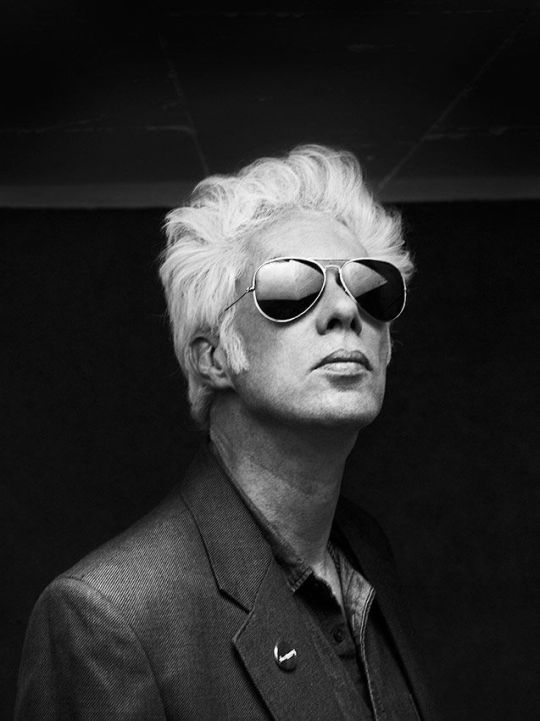
When you get someone adept at the art of filmmaking that can resonate at the highest vibrations when creating, that is a blessing in itself, but when you get a jack of all trades, everyman who is deeply observant and unabashedly humanist, and happens to make films to boot, then you start reaching the realms of Jim Jarmusch. As a Midwestern kid who studied at New York’s famed Columbia University before transitioning to a span in Paris, Jarmusch has the unique gift of deeply appreciating lofty art on the same level as outsider, underground art, and by understanding the context that connects all of them, his appreciation of time is enhanced by association. In a world that has become obsessed with taking in information with no intention of retention at a breakneck speed, it is refreshing to know that Jim Jarmusch has stood his ground in terms of deliberate pacing and tone.
Most of my Jarmusch familiarity came from the first half of his catalog, and it’d been years since I watched his work, so rather than rank what I remembered while trying to fit first watches in, I decided that the time was right to revisit the entire catalog. Doing so not only gave me a broader understanding of his overall vision, but it made me realize that a director with 25 years in the game is still capable of making drastic style shifts. Without further ado, here is my preferential ranking of the 13 Jim Jarmusch films available as of March 2021.

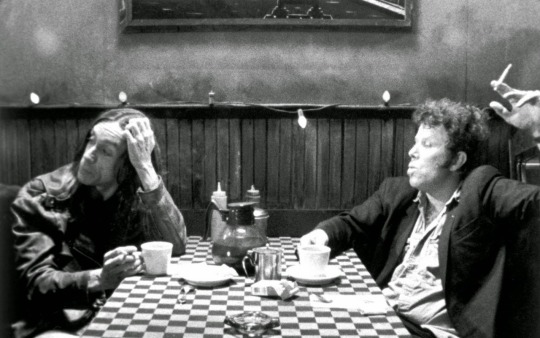
13. Coffee and Cigarettes (2003) This isn’t a bad film, but Coffee and Cigarettes definitely reeks of a narrative-less venture. The best parts of Coffee and Cigarettes come in attempts at placing what was shot explicitly for the film, versus what was shot during the previous fifteen or so years that Jim Jarmusch directed other feature films. Taken as a collection of independent vignettes, the film is rich in memorable moments, but for a director so adept at unifying themes with incredible nuance, specifically within the obtuse hurdles presented by an anthology film, Coffee and Cigarettes feels much more like assorted pieces than a fractured whole. More so than an original idea, the movie feels like a deep cut that true fans will appreciate, casual fans can easily reference, and Jarmusch-laymen can use as an entry into deeper conversations. If nothing else, see Coffee and Cigarettes for the incredibly entertaining scene where Cate Blanchett acts circles around Cate Blanchett, but Cate Blanchett still does her thing.

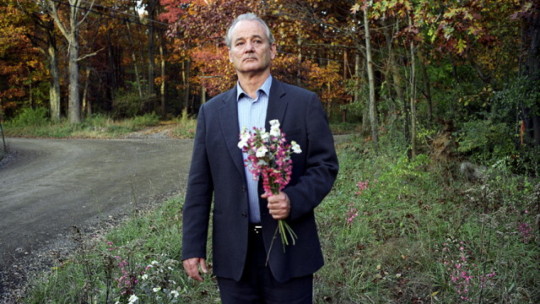
12. Broken Flowers (2005) Bill Murray has been popular longer than I’ve been alive, but somewhere around the beginning of the 21st century, it seemed like the entire world caught Bill Murray fever in a major way. After a couple of iconic roles in films by Wes Anderson and Spike Jonze, his star was riding new and unfathomable highs, and that was right when Jim Jarmusch teased collaboration via Coffee and Cigarettes before diving headlong into it with Broken Flowers. Of all the Jim Jarmusch films, this one still feels the least like his style, at least in terms of purity. Most of its magic comes from surrounding Bill Murray with Jeffrey Wright as a human conscience, as well as a parade of memorable actresses the likes of Sharon Stone, Frances Conroy, Jessica Lange, TIlda Swinton, Chloë Sevigny and more. The film runs high on charm, and for any man staring at the Autumn of his years, the feelings of romantic regrets are likely relatable on some level. Interestingly, this project feels like one of the most accessible in the Jarmusch canon, perhaps because of its efficient production presentation. If there were ever a Jim Jarmusch date movie, it’s Broken Flowers.

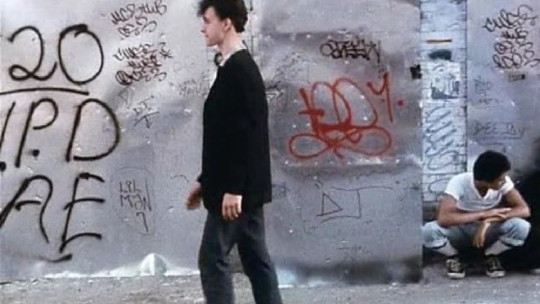
11. Permanent Vacation (1980) Upon initial viewing, Permanent Vacation possesses many of the earmarks of a student film, such as limited locations, long passages with minimal dialogue, symbolic monologues in place of standard narrative dialogue, and isolated characters within the context of an implied bigger world. The strengths that the film possesses, however, are elements that became staples in Jim Jarmusch films : a protagonist either absent of motivation or driven from within, cross-cultural fascination and iconography and the aforementioned patient approach to narrative are some of the key ingredients in the Jarmusch recipe. As a unique voice in a burgeoning New York collective of filmmakers, it makes total sense that his debut would be both an ode to New York City and an ode to living life like an outsider in the mecca of culture. This film probably wouldn’t be the best place to start a curious party to the Jim Jarmusch canon, but it would certainly be one to circle back to if their interest is piqued… I would recommend this one to fans of Richard Linklater’s early work for sure.

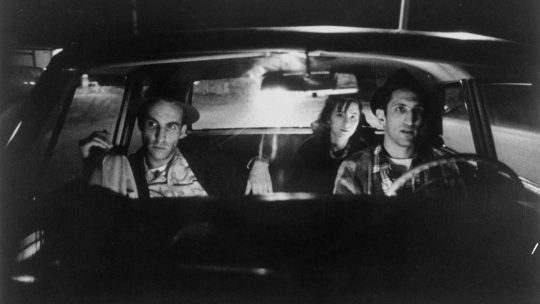
10. Stranger Than Paradise (1984) Stranger Than Paradise marks the first of many black and white commercial releases from Jim Jarmusch. As a second film, it has everything you’d want to see from a director finding his place in the industry : the cinematography has evolved and incorporated more movement, Jarmusch is starting to let his personality shine through via musical choices, and the stories are evolving into more relatable narratives rather than ruminations on isolation (while simultaneously becoming much funnier). Jarmusch still isn’t afraid to let his films breathe, however, which leaves his distinct style present even among the areas of growth. The incorporation of a strong female lead presence (thanks to Eszter Balint’s brilliant performance) showed that Jarmusch had a full understanding when it came to presenting stories for everyone on the screen, rather than limiting his voice to male characters. The casting of John Lurie and Richard Edson opposite one another is kinetic both visually and in terms of performance, as each of their versions of uptight laid-backness compliment one another.

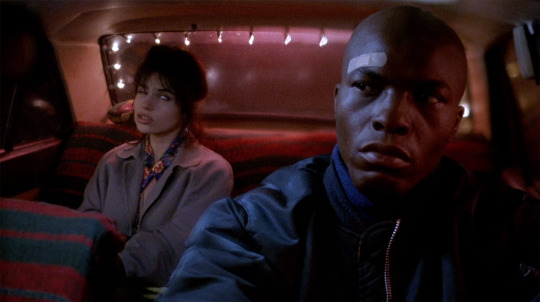
9. Night on Earth (1991) Of the anthology films that Jim Jarmusch has created, Night on Earth is possibly my favorite. More so than any of the others, it captures the intriguing aspects of human nature by juxtaposing them directly against the very human tendency to judge books by their covers. With the vast majority of the film taking place in a handful of taxi cabs, we are left in the hands of the actors and actresses in the hopes that their interactions, chemistry and dialogues can keep us captivated, and the cast presented in the film completely stand up to the challenge in their pairings. Jarmusch also presents movie audiences with a way to show different worldly locations without having to lean on the cinematic and iconic shorthand that we are used to, such as the Hollywood sign, Times Square, the Eiffel Tower and so on… instead, we are shown places that locals would inhabit in all of their rundown and lived in glory, which in turn, amplifies the grounded realness of the interactions, as if we are looking at a fictional blueprint for what would later become the popular HBO series Taxicab Confessions. This film sits in-between two of Jim Jarmusch’s most iconic releases, so it is easy to see how this one could be easily lost in the shuffle, but it is certainly not a film to be missed, especially for those who would consider themselves Jarmusch fans.

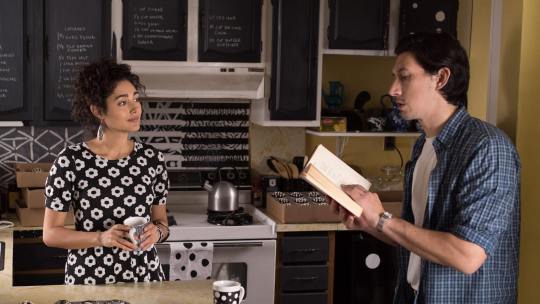
8. Paterson (2016) Jim Jarmusch brings a humble sense of humanity to all of his films, but Paterson stands out for its nuance, subtlety and confidence in its patience. Much like Forrest Gump or a less abstract Charlie Kaufman film, Paterson dwells in an interesting realm of an unknowingly wise protagonist tethered to the center of tornado-like emotions and experiences from all they encounter. Jarmusch manages to take this framework, dial down the absurdity to a sneaky degree, and ramp up the grounded elements to the point where a viewer cannot help but graft pieces of themselves onto the events presented. As a musician with a day job, I can also relate to Paterson’s displays of beauty found in redundancy, and the peace that comes with understanding intentions for creative expression, even if others see it in a different light that you do. While not the grandest of Jim Jarmusch gestures, it is without a doubt one of the most sincere and heartfelt of his selections.

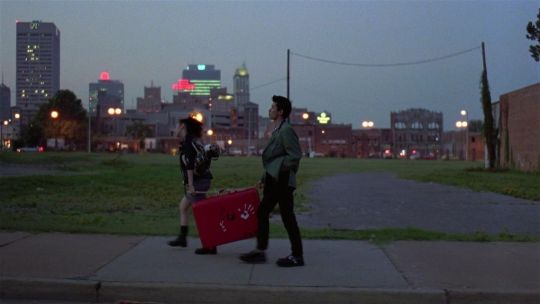
7. Mystery Train (1989) Mystery Train marks the first definitive signs of Jim Jarmusch knowing, understanding and utilizing the tools he’d come to favor in a manner that seemingly resonated what he pictured in his head. Memphis as a setting provides the juxtaposition of beauty and urban decay captured in Permanent Vacation; placing our audience on a journey with two foreign tourists brings the worldly view introduced in Stranger Than Paradise; and, most importantly, all of the coolness and humor that thrived in Down by Law returns triumphantly. Jarmusch also puts anthology filmmaking on the table, which is important for two reasons… first and foremost, it would become a style he would go on to thrive in, returning to it immediately with Night on Earth and once more with Coffee and Cigarrettes… secondly, as for Mystery Train directly, it allowed Jarmusch to surround Masatoshi Nagase and Youki Kudoh (burgeoning stars Western audiences were unfamiliar with) and Nicoletta Braschi, and surround them with his talented friends like Steve Buscemi, Cinqué Lee, Rick Aviles, Vondie Curtis-Hall and Tom Noonan, as well as legendary musicians like Tom Waits, Joe Strummer, Screamin’ Jay Hawkins and Rufus Thomas. Between these high profile castings, the stylish cinematography and the heartfelt quirkiness of the leads, Mystery Train feels like the film where everything came together in the best ways possible.

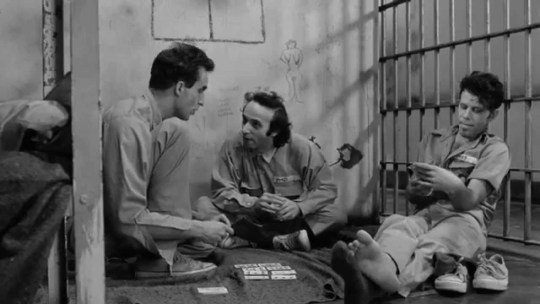
6. Down by Law (1986) To my knowledge, Down by Law would be considered the breakout success of the Jim Jarmusch library. John Lurie returned to the fold to provide another performance infused with coolness, but this time around, up and coming Italian star Roberto Benigni and iconic recording artist turned actor Tom Waits share lead duties, forming an unlikely trio with monstrously dynamic on-screen chemistry. Jarmusch not only switched things up for himself by setting the film in New Orleans rather than centering it around New York, but he turned the jailbreak genre on its ear by focusing on the escapees rather than the escape itself. The conflict between Jack and Zack is seeded with their individual problems with women (which both include emasculating each man by chastising them for not using domestic violence), as well as each of them ending up framed prior to imprisonment, which makes Roberto the de facto peacemaker despite his huge language barrier. Down by Law marks the first time that edginess found its way into a Jim Jarmusch film, and while it never became his forte, it wasn’t the last time that element was key to a Jarmusch film.

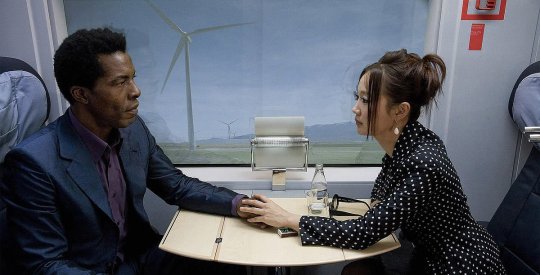
5. The Limits of Control (2009) When reflecting on The Limits of Control, the word patience comes to mind : the patience of accepting repetition… the patience of a trilingual film with minimal dialogue… the patience of a film that shows much more than it tells. As a take on noir, the Jim Jarmusch variety brings to mind films like Le Samourai, where actions speak infinitely louder than words, choices come with a definitive set of consequences, and we as viewers are allowed to consider what we are presented with in real time, just like our protagonist. The coolness levels are also pushed to maximum levels in this film, but then, what’s a Jim Jarmusch film without a generous dose of cool in it? While it is never rightly stated, I like to pretend that The Limits of Control takes place in the same universe as Ghost Dog, with Raymond having evolved into The Lone Man using the tools left behind by Ghost Dog. Maybe it’s a bit of embellishment on my end, but it makes an already great film have that little extra touch of pizazz needed to stand out from the pack.

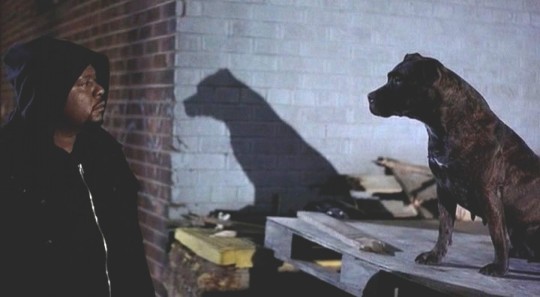
4. Ghost Dog: The Way of the Samurai (1999) While Jim Jarmusch isn’t necessarily a household name, he is relatively well known, and for many familiar with his work, Ghost Dog: The Way of the Samurai served as the introductory film for them. The casting of Forest Whitaker in the lead role continued the trend of higher profile names joining the Jarmusch fold, and stylistically, the mixture of Ghost Dog’s hitman and samurai worlds with that of the mafia film (which was about to see a popularity resurgence in light of the recent premier of The Sopranos) was alive, kinetic, and rich with varied personalities. Ghost Dog: The Way of the Samurai also stood as an early example of RZA’s talents in the realm of scoring films, which would later go on to be a key element of Kill Bill: Vol. 1. For a movie with a more traditional approach, perhaps even the most accessible approach of all Jarmusch films, Ghost Dog: The Way of the Samurai is anything but conventional, and it’s the sense of pride it wears in its non-conventionality that makes it the cult classic it became.

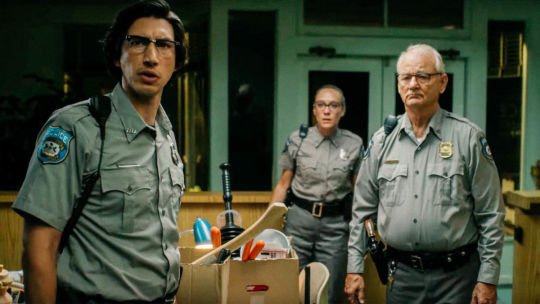
3. The Dead Don't Die (2019) Not since Dead Man has Jim Jarmusch picked such a distinct genre for a film of his, or decided to include such a long list of high profile names in character roles. While the sense of doom that usually comes with zombie movies is present, Jarmusch sticks to his toolkit by focusing solidly on the human element during the early portions of the film where many people would already have zombies doing the narrative and visual heavy lifting, and in turn, the audience finds themselves drawn deeper and deeper into the story well before the undead arrive. Of all the Jarmusch films, The Dead Don’t Die has the rare designation of being the only one that seems to comment on film itself, be it references to iconic characters from other properties, ruminations on film as a format, or even discussions centered around film fandom. While most films tend to stay around from outright explanations of whatever the root cause of the zombies are, The Dead Don’t Die uses the vacuum as a brief opportunity to make a comment on polar fracking and other climate/environment-altering processes. Even the zombies get the most on-screen humanity received since the days of George Romero’s Dead series, a refreshing change of pace that has been often ignored in recent films centered around the undead. Films like this one prove that Jim Jarmusch has the capacity to make films about most anything, and the further he strays from his supposed comfort zone, the seemingly better the films get.

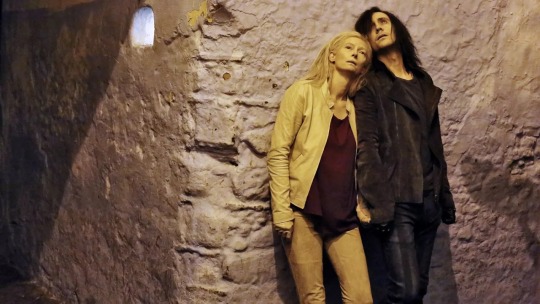
2. Only Lovers Left Alive (2013) For a man so dedicated to being aware of the passage of time, a man with a deep appreciation for nostalgic cool of all eras, and a man with a rich and layered appreciation for art and music from across the board, it makes total sense that Only Lovers Left Alive would be a celebration of all these aspects framed as an eternal love with a deep cross-section between the original lovers and the tales of vampires. The vampiric leads allow Jarmusch the perfect vehicle to seamlessly tie stellar creativity from any point in time with a singular line, and the deep implications of our protagonists' names suggest a subtextual lore that one could likely build a cinematic universe around. For a venture with aspirations this lofty, the casting must fit the call, and the main four of Tilda Swinton, Tom Hiddleston, John Hurt and Jeffrey Wright build a solid foundational square for all characters to navigate deep emotions freely. If you’re looking for Twilight and Interview with the Vampire fare, you’ll probably long for more, but if films like Let the Right One In are more your speed, then Only Lovers Left Alive will likely be a revelation.

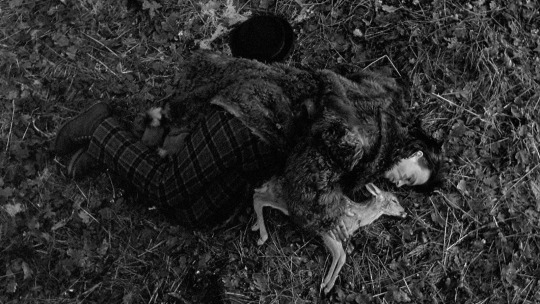
1. Dead Man (1995) While Jim Jarmusch never lost his auteur sensibilities, Dead Man marked his initial foray into the world of larger scale traditional productions through the vehicle of the period piece. Jarmusch films were not unfamiliar with showing us a broader view of the world we know, but transposing his trademark style into the world of the Western marked a bold (but ultimately rewarding) turn. With Neil Young serving as his Ennio Morricone, Jarmusch dusted off his black and white filmmaking equipment and seemingly told the production design team to blend all of the best parts of Spaghetti Western and German Expressionism. Johnny Depp, the film’s star, was riding the wave of success afforded from What’s Eating Gilbert Grape?, Benny & Joon and Ed Wood, and Dead Man carried that momentum right along. As for his Western universe, the list of names that Jarmusch chose to populate it with is where his style stood out : Crispin Glover, John Hurt, Robert Mitchum, Iggy Pop, Gibby Haines, Gabrielle Byrne, Billy Bob Thornton, Alfred Molina and more drive home Depp’s “fish out of water” characterization convincingly. Based on its period-piece designation, Dead Man signalled a drastic leap in style utilization for Jarmusch, a creative rarified air that he would return to for several future productions.
#ChiefDoomsday#doomonfilm#JimJarmusch#PermanentVacation#StrangerThanParadise#DownByLaw#MysteryTrain#NightOnEarth#DeadMan#GhostDogTheWayOfTheSamurai#CoffeeAndCigarettes#BrokenFlowers#TheLimitsOfControl#OnlyLoversLeftAlive#Paterson#TheDeadDon'tDie
14 notes
·
View notes
Note
Because i miss your design themed rants (it is good word here) i would like you to rank Rammstein album covers from designers point of view.
Ah, I love you. This got VERY ranty.
This is kinda hard because I tend to judge the entire packagaing/notes, and when I count that into it the ranking would be ever so slightly different. I’ll mention it for each I have Opinions (TM) on, but yeah, this is solely going on cover. I’ll only do the studio albums, not made in germany or the DVDs, or this will get too big.
7th: Rosenrot.
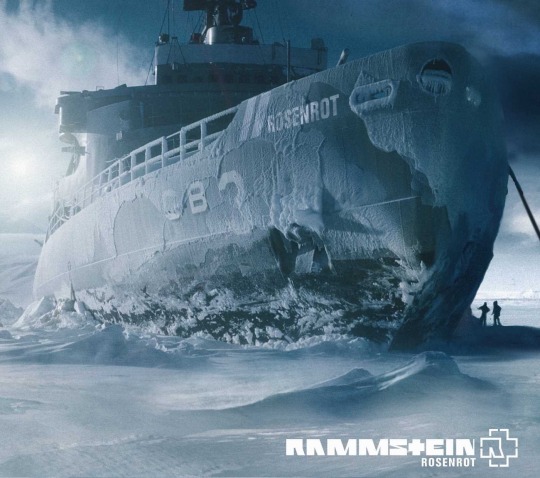
I know lots of you are gonna hate me for this. It’s not that I don’t like it, I do, it’s beautiful. Unfortunately it’s ... slightly lazy. It’s I think their most obvious cover and obvious feels like it’s good design but never truly is. It’s got that first idea feel, if that makes any sense. There is always that project where you go “uh can’t think of anything, but this works.” It’s not a bad thing, they clearly still knew what they were doing. It’s just ... that typical photoshop post apocalyptic composit that lost of metal/alternative bands did at some point. They all did it because it’s cool. No argument there. It’s just that I expect a bit ... more.
6th: Herzeleid

I know it’s iconic, but. The execution?! Terrible. The colours of their skin and that flower?! Too different to feel monochromatic, to same same to contrast nicely. Too much texture. What is that?! The positive bit is the placement of the typography because, neat! Most people fail at that. I like the blue-grey there aswell, how about you’d added that to their skin a little? No? Ok.
Also, this (Richard speaking):
“The bloody sleeve! What a crazy situation that was. We approved the photos in a car park without thinking what we were letting ourselves in for. When we saw what the designer had done, we freaked! We looked so… gay! All of us stripped to the waist. It was like an ad for a gay porno film. So we had to say, sort it out. Make us look straight again. Change the sleeve.”
Who in the fuck works like this?! Nevermind, I know it was a considerably younger Dirk Rudolph, but fucking hell, have some self respect, all of you. I know they didn’t know what they were doing, they probably had the management/record company comission it, and that was still the time graphic designers were seen as just pixel pushers from that time it took 3 days to layout a poster. Still. What was that brief?! Could you have sat down for 20 minutes and talk, perhaps?! Also, I hope this is how Richie learned to be the nightmare client I know he is. Don’t approve layouts in a car park, what the fuck is wrong with you.
It’s a pity because the concept? Nice. Sculpted men infront of flowers, what else do you want from life. Why crysanthemes, tho? Too textured in that macro shot. What is that photo angle?! Might try and redo that if I ever feel like it.
5th: Reise, Reise

This breaks my heart a little, because it’s my lonely island album. And it isn’t bad by any stretch. Actually, their album cover game is ridiculous, can I have that established as a general benchmark? It would make for a lot less mental break downs. The thing is ... I like the idea. Make it look like the black box, cool. The problem is the type. It makes it look like “Flugrekorder Nicht Öffnen” is the album title. To be fair, Typesetting is my main thing, and album artists get it wrong (imo) 99 out of 100 times. I wish they would have comitted more and just left the titel off and solved it with a slide in, or a sticker or something like that. It’s just a bit ... weird. What works brilliantly is that it’s very memorable, stands out on the shelf, is unusual, all of that. It’s iconic. I do like it very much but I had to place something here.
4th: Liebe ist für alle da
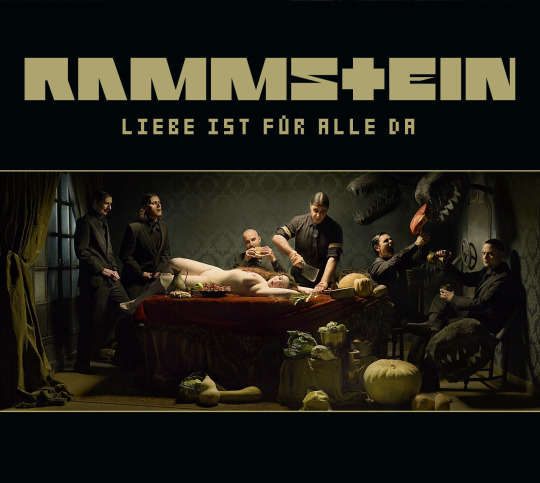

Now the thing with that album is that it has two covers. If I’d gone by the original one, I’d have to place it behind Reise, Reise. Everything RR has in impact, this is missing. It’s too dark, has too many pieces, it won’t stand out on a shelf. Especially not in the CD age when it was on 12x12 cm. Even on a Vinyl, it’s ... just not that impactful. Sure, the photograph is beautiful but meh. Luckily there is a second option. And that - is almost like a logo. It works as a symbol, and that makes it so strong. Less is more. Brilliant. You can draw it from memory. It’s so iconic, the kind of stuff that starts showing up in subways, drawn on the back of a seat and sprayed on walls. Tell me you never wanted to paint that on a flag and take it to a pride parade. I am sure some of us have.
I do want to mention the booklet in this, because it does bump it up a little too, because where the panorama image fails as a cover, the inside is done so beautifully with the fold out, the type setting, everything. It’s special, and done with love and it shows.
3rd: Mutter
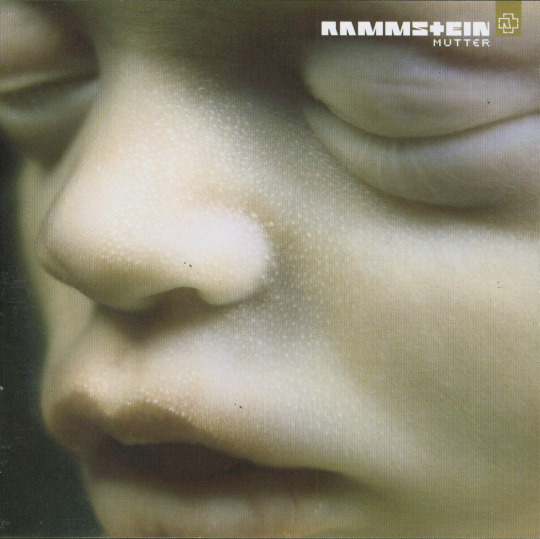
There is just something about this that is so, so, so memorable. Everyone recognises this. If you ask anyone over the age of 20 to describe Rammstein with an album cover only to someone less familiar, is anyone gonna say anything but “they’re the band with the embryo in close up”?! Maybe this is subjective because that’s how I first got exposed to them, but I don’t think so. It’s such a powerful image. It’s both beautiful and uncomfortable, the way Rammstein as a whole and that album in particular is beautiful and uncomfortable. It’s stunning. That’s it. Unfortunately, this one falls apart inside. The went too far with the whole Matrix inspired cyber elements. It’s trendy and trendy never stands the test of time, in that it has the same problem Rosenrot has, but much worse because it’s not even done that well. They could have just used the photos and kept it raw. The type setting on the cover is as good as it gets with albums tho, so I am happy.
2nd: Sehnsucht
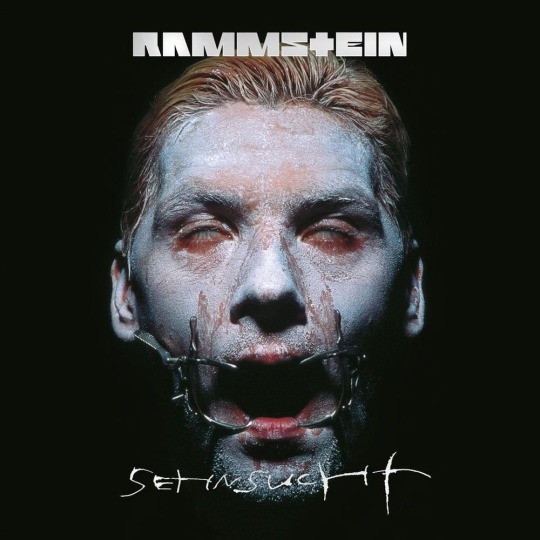
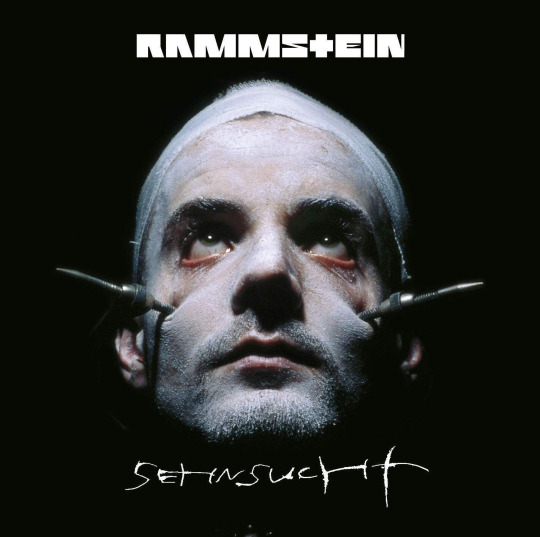
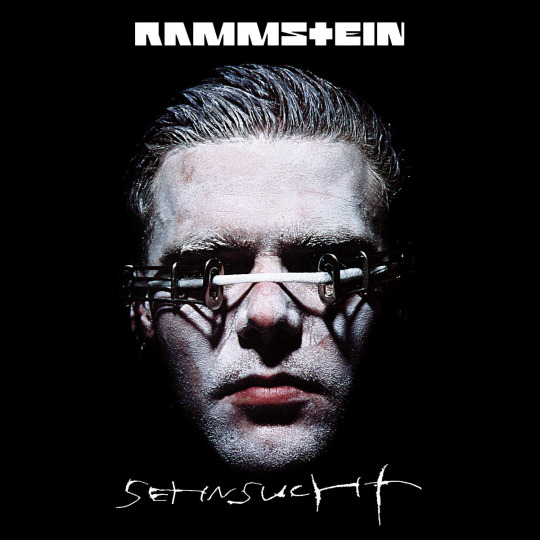
Ah, Sehnsucht. The most perfect band shoot they ever had. Helnwein just ... did it. I don’t know, it both defined and summed up who they are aesthetically for the longest time. It’s the visual statement that says “this is Rammstein”. It ... just looks like a band that sings about heartbreak and necrophilia is supposed to look like. Don’t you agree? How else would it look like? Even that omniously coloured beach. It’s as if the predicted the mood of True Detective, only less Hollywood. That darkness we don’t want to see, that can happen anywhere. And where they fell short with Mutter, where they added too much on to these powerful images, they just added the type. Granted, it was the 90s so it’s slightly experimental type. But unlike most type in the 90s it stood the test of time. Add the whole variable cover versions and chefs kiss! Beautiful work. Makes me happy and emotional and ugh.
1st: The White Album

I’m just calling it that now. The Matchstick. You know, good design is made up from three components only: Concept. Commitment. Execution. The concept of this is so streamlined and clean. It’s the entire Rammstein story narrowed down to a single little thing. It’s small and ordinary looking but it can become dangerous and big. It’s underestimated. A little piece of wood with a head of phosphor and calium chlorit and yet you can commit the most legendary arson. It’s the personification of the thing that has become synonymous with them: Fire. It says so much with so little. And then they comitted to that. No useless typography, a simple but oh so well done photoshoot, the simple text on white. They didn’t ad too much additional ideas on to it, they trusted that one to carry and it does. They could have done without the black and white match stick arrangements inside, although I’m not even sure if that’s not just a limited edition thing, it’s a bit too much almost. They got scared a little there. The execution is also well done, I have very little to critique, only that I feel it lacks a tiny bit of love. The thing is, the more minimalist you go, the more love you have to put into each element. I feel like the spacing of the type should have been fixed in a few places but honestly that is being very very picky. Or not. Because if it wasn’t for that, and the teeeeny tiny commitment issue, this should have been a candidate for the packaging grammy. I mean it should be even the way it is, but we all know how those fuckers ignore our boys.
I’m done. Can I use this as application? Do you think if I send them a run down of basically tearing them apart they will hire me?
#my version of i will be a rockstar is i will win the packaging grammy#just you watch me#it’s roughly 35 years until the end if my career and just you watch me#rammstein#album cover#graphic design#i need a ramble tag#rammstein asks
61 notes
·
View notes
Text
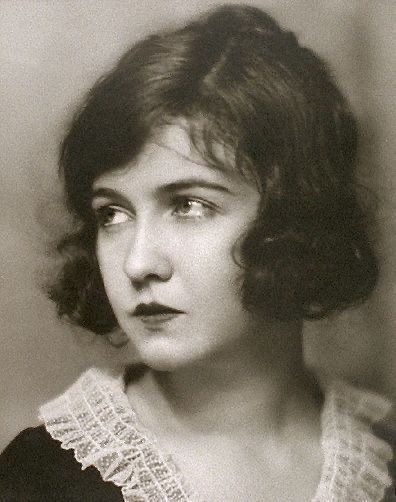
Dorothy Elizabeth Gish (March 11, 1898 – June 4, 1968) was an American actress of the screen and stage, as well as a director and writer. Dorothy and her older sister Lillian Gish were major movie stars of the silent era. Dorothy also had great success on the stage, and was inducted into the American Theater Hall of Fame. Dorothy Gish was noted as a fine comedian, and many of her films were comedies.
Dorothy Gish was born in Dayton, Ohio. She had an older sister, Lillian. The Gish sisters' mother, Mary Robinson McConnell Gish, supported the family after her husband James Leigh Gish, a traveling salesman, abandoned the family in New York. Mary Gish, who was "a former actor and department store clerk", moved with her daughters to Indiana, where she opened a candy and catering business. In 1902, at the age of four, Dorothy made her stage debut portraying the character "Little Willie" in East Lynne, an adaptation of the 1861 English novel by Ellen Wood.
In 1910, she heard from her husband's brother, Grant Gish, who lived in Shawnee, Oklahoma and informed her that James was ill. He was in a hospital in nearby Norman, Oklahoma, so Mary sent 17-year-old Lillian to visit him. At first, Lillian wrote back to her 12-year-old sister Dorothy that she planned to stay in Oklahoma and continue her education, but after seeing her father she admitted she missed her mother and sister. So, after a few months away from them, in the spring of 1912, she traveled back. Soon afterward, their childhood friend, actress Mary Pickford, introduced the sisters to director D. W. Griffith, and they began performing as extras at the Biograph Studios in New York at salaries of 50 dollars a week. During his initial work with the sisters, Griffith found it difficult to distinguish one from the other, so he had Lillian wear a blue ribbon in her hair and Dorothy a red one. The girls, especially Lillian, impressed the director, so he included them in the entourage of cast and crew he took to California to produce films there.
Dorothy and her sister both debuted in Griffith's 1912 production An Unseen Enemy. She would ultimately perform in over 100 short films and features, many times with Lillian. Throughout her own career, however, Dorothy had to contend with ongoing comparisons to her elder or "big" sister by film critics, fellow actors, studio executives, and by other insiders in the motion picture industry. Such comparisons began even from the outset of the sisters' work for Biograph. Linda Arvidson, Griffith's first wife, recalls their initial work for the studio in her autobiography When The Movies Were Young:
Lillian and Dorothy just melted right into the studio atmosphere without causing a ripple. For quite a long time they merely did extra work in and out of pictures. Especially Dorothy, as Mr. Griffith paid her no attention whatsoever and she kept on crying and trailed along. She also continued to play in many one and two reel Biograph films, learning the difficult technique of silent film acting, and preparing for opportunity when it came. Dorothy was still a person of insignificance, but she was a good sport about it; a likable kid, a bit too perky to interest the big director, so her talents blushed unnoticed by Mr. Griffith. In 'The Unseen Enemy' the sisters made their first joint appearance. Lillian regarded Dorothy with all the superior airs and graces of her rank. At a rehearsal of 'The Wife', of Belasco and DeMille fame, in which picture I played the lead, and Dorothy the ingénue, Lillian was one day an interested spectator. She was watching intently, for Dorothy had had so few opportunities, and now was doing so well, Lillian was unable to contain her surprise, and as she left the scene she said: 'Why, Dorothy is good; she's almost as good as I am.' Many more than myself thought Dorothy was better.
Dorothy Gish's budding film career almost ended on a street in Los Angeles on Thanksgiving Day in 1914. On Friday, November 26, the 16-year-old actress was struck and nearly killed by a "racing automobile". Newspapers and film-industry publications at the time reported the event and described the severe injuries Gish sustained. The near-fatal accident occurred as Dorothy was walking with Lillian at the intersection of Vermont and Prospect avenues. According to news reports, after the car struck her, it dragged her along the street for 40 to 50 feet. Other movie personnel who were standing together on a nearby sidewalk, including D. W. Griffith, witnessed Dorothy being hit. The following day, the Los Angeles Times informed its readers about the accident:
...Miss Dorothy Gish, a moving picture actress, was seriously injured yesterday afternoon. Picked up unconscious, she was taken to the office of Dr. Tryon at number 4767 Hollywood boulevard, where it was found her injuries consisted of a crushed right foot, a deep cut in the right side, and bruises on all parts of her body. She was later removed to the home of her mother at LaBelle apartments, Fourth and Hope streets. The automobile that ran her down is owned by T. B. Loreno of No. 6636 Selma avenue, also of the moving picture game.
Subsequent news reports also describe the reaction of other pedestrians at the scene. The Chicago Sunday Tribune and trade papers reported that Dorothy's "horrified friends" rushed to her aid, with Griffith being among those who lifted the unconscious teenager into an ambulance and reportedly rode with her in the emergency vehicle. In addition to Gish's initial examination by the doctor identified by the Los Angeles Times, the Chicago newspaper and Motion Picture News stated that she was rushed to the hospital, where surgeons mended her "very badly torn" left side with "many stitches" and treated the area where one of her toes had been "cut off", presumably a toe from her badly damaged right foot. At the time of the accident, Gish was completing a two-reel romantic comedy with actor W. E. Lawrence. The film, How Hazel Got Even, had already been delayed once at Reliance-Majestic Studios due to director Donald Crisp's bout with pneumonia. Completion of the short was postponed yet again, for over a month, while Gish recuperated. Originally scheduled for release on December 27, 1914, How Hazel Got Even was not distributed to theaters until mid-February 1915.
After recovering from the 1914 accident, Gish resumed her screen career the following year, performing in a series of two- and three-reel shorts as well as in longer, more complex films such as the five-reel productions Old Heidelberg, directed by John Emerson, and Jordan Is a Hard Road, once again under D. W. Griffith's direction. Increasingly, Dorothy's appeal to both producers and audiences continued to grow in 1915, leading W. E. Keefe in the June issue of Motion Picture Magazine to recognize her as "one of the most popular film stars on the Motion Picture screen". In an article about Gish in the cited issue, Keefe also recognizes that Dorothy, career-wise, was finally emerging from her sister's shadow:
A year ago she was known as Lillian's little sister. A year's growth has changed this. Today she is taller and weighs more than her "big" sister, and is known as Dorothy Gish without always being identified as "Lillian's sister."
In 1916 and 1917, Dorothy continued to expand her acting credentials by starring in a variety of five-reelers for Fine Arts Film Company or "Griffith's studio", which was a subsidiary of Triangle Film Corporation. Her work in those years required filming on locations in New York and on the West Coast.
In the 1918 release Hearts of the World, a film about World War I and the devastation of France, Dorothy found her first cinematic foothold in comedy, striking a personal hit in a role that captured the essence of her sense of humor. As the "little disturber", a street singer, her performance was the highlight of the film, and her characterization on screen catapulted her into a career as a star of comedy films.
Griffith did not use Dorothy in any of his earliest epics, but while he spent months working on The Birth of a Nation and Intolerance, Dorothy was featured in many feature-length films made under the banner of Triangle and Mutual releases. They were directed by young Griffith protégés such as Donald Crisp, James Kirkwood, and Christy Cabanne. Elmer Clifton directed a series of seven Paramount-Artcraft comedies with Dorothy that were so successful and popular that the tremendous revenue they raked in helped to pay the cost of Griffith’s expensive epics. These films were wildly popular with the public and the critics. She specialised in pantomime and light comedy, while her sister appeared in tragic roles. Dorothy became famous in this long series of Griffith-supervised films for the Triangle-Fine Arts and Paramount companies from 1918 through 1920, comedies that put her in the front ranks of film comedians. Almost all of these films are now considered to be lost films.
"And So I Am a Comedienne", an article published in Ladies Home Journal in July 1925, gave Dorothy a chance to recall her public persona: “And so I am a comedienne, though I, too, once wanted to do heroic and tragic things. Today my objection to playing comedy is that it is so often misunderstood by the audiences, both in the theater and in the picture houses. It is so often thought to be a lesser art and something which comes to one naturally, a haphazard talent like the amateur clowning of some cut-up who is so often thought to be ‘the life of the party’. In the eyes of so many persons comedy is not only the absence of studied effect and acting, but it is not considered an art.”
She made a film in England Nell Gwynn which led to three more films. Gish earned £41,000 for these movies.
When the film industry converted to talking pictures, Dorothy made one in 1930, the British crime drama Wolves. Earlier, in 1928 and 1929, her performances in the Broadway play Young Love and her work with director George Cukor renewed her interest in stagecraft and in the immediacy of performing live again. The light comedy had proven to be popular with critics and audiences in New York, in performances on the road in the United States, as well overseas in a London production. Those successes convinced her to take a respite from film-making.
In 1939, both Dorothy and Lillian Gish found the stage role of a lifetime. “Dorothy and I went to see the New York production of Life With Father, starring Howard Lindsay and Dorothy Stickney,” Lillian wrote in her autobiography. “After the performance I said: ‘This is the play we’ve been waiting for to take through America.’” Lillian predicted the popular play would be a perfect showcase for all the people who had seen the hundreds of films featuring Mary Pickford, Dorothy, and herself. She was introduced to Lindsay backstage, and immediately surprised the producers with her enthusiastic desire to head the first company to go on the road, with Dorothy taking the same part for the second road company, and the movie rights for Mary Pickford. Pickford did not make the film version, but the Gish sisters took the two road companies on extensive tours. Another stage success later in Gish's career was The Magnificent Yankee, which ran on Broadway at the Royale Theatre during the first half of 1946. Lillian in her pictorial book Dorothy and Lillian Gish repeats John Chapman's comments about her sister's work in that production: "'Miss [Dorothy] Gish and Mr. Calhern give the finest performances I have ever seen them in. She is a delight and a darling.'"
Television in the 1950s offered many stage and film actors the opportunity to perform in plays broadcast live. Dorothy ventured into the new medium, appearing on NBC's Lux Video Theatre on the evening of November 24, 1955, in a production of Miss Susie Slagle's. She and Lillian had previously performed that play together on screen, in Paramount Pictures' 1945 film adaptation.
"The truth is, that she did not know what she really wanted to do," wrote her sister, Lillian, in her autobiography. "She had always had trouble making decisions and assuming responsibilities, in some ways she had never grown up. She was such a witty and enchanting child that we enjoyed indulging her. First Mother and I spoiled her and later Reba, her friend, and her husband Jim. Reba called Dorothy 'Baby' and so did Jim. With the best intentions in the world, we all helped to keep her a child."
From 1930 until her death, she only performed in five more movies, including Our Hearts Were Young and Gay (1944), which was a hit for Paramount. Director Otto Preminger cast Dorothy in his 1946 film, Centennial Summer, and Mae Marsh appears in the film in one of her many bit parts. In the 1951 release The Whistle at Eaton Falls, a film noir drama film produced by Louis de Rochemont, Dorothy portrays the widow of a mill owner. On television during this period, she also made several appearances in anthology television series. Her final film role was in 1963 in another Otto Preminger production, The Cardinal, in which she plays the mother of the title character.
Dorothy Gish married only once, to James Malachi Rennie (1890–1965), a Canadian-born actor who co-starred with her in two productions in 1920: Remodeling Her Husband, directed by sister Lillian, and in the comedy Flying Pat. In December 1920, the couple eloped to Greenwich, Connecticut, where they wed in a double ceremony in which Gish's friend, actress Constance Talmadge, also married Greek businessman John Pialoglou. Gish and Rennie remained together until their divorce in 1935. Dorothy never married again
Gish died aged 70 in 1968 from bronchial pneumonia at a clinic in Rapallo, Italy, where she had been a patient for two years to treat hardening arteries. Her sister Lillian, who was filming in Rome, was at her bedside. The New York Times reported the day after her death that the United States consulate in Genoa was making arrangements to cremate "Miss Gish's body" for return to the United States. The ashes were later entombed in Saint Bartholomew's Episcopal Church in New York City in the columbarium in the undercroft of the church. Lillian, who died in 1993, was interred beside her.
In recognition of her contributions to the motion picture industry, in 1960 Dorothy Gish was awarded a star on the Hollywood Walk of Fame at 6385 Hollywood Boulevard in Los Angeles.
The (since renamed) Gish Film Theatre and Gallery of Bowling Green State University's Department of Theatre and Film was named for Lillian and Dorothy Gish and was dedicated on that campus in 1976.
#dorothy gish#silent era#silent hollywood#silent movie stars#classic hollywood#golden age of hollywood#classic movie stars#1910s movies#1920s hollywood#1930s hollywood#1940s hollywood#1950s hollywood#1960s hollywood
15 notes
·
View notes
Text
My Top 10 Favourite Horror Films of 2020
Every January, most people who review or talk about movies on YouTube tend to piece together a Top 10 list of their favourite movies from the year prior. In order to stand out from the crowd (and also because I was too lazy to do this sooner), I decided to wait until March, by which time most YouTubers aren’t really talking about movies from 2020 anymore.
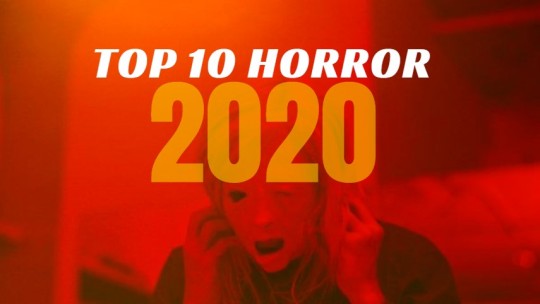
I know what you’re thinking: sounds kinda stupid – why would anybody care about a Top 10 list of the best movies of 2020…THREE months into the new year!? Well, as you’ve likely heard, 2020 was a year like no other, and as result of the ongoing global pandemic, movie release dates from 2020 were pushed back months, sometimes multiple times. Some films that were supposed to be released last year didn’t arrive until 2021, even though they’re officially considered “2020 films,” according to their profiles on websites like IMBD and Letterboxd.
And so, some of these so-called “2020 films” were not available (at least to me) until only recently, such as Saint Maud or The Dark and the Wicked. I feel like I’ve now had a chance to see almost all of the horror films I’ve wanted to see from last year. In this video, if you care to stick around, I will share with you my Top 10 favourite horror films of 2020. So, here we go…
#10/ The Dark and the Wicked:
A sister and brother return to the family homestead where their father is slowly dying and their mother is understandably distraught but also disturbed and distant. The siblings soon realize that something evil has invaded their family home as they are terrorized by whatever is slowly killing their father. Directed by the same guy behind 2008’s The Strangers, The Dark and the Wicked is at times bleak and unsettling, and it does a good job at keeping you intrigued in this family’s unnerving conflict. However, it felt a bit rushed and undeveloped at other times, and its ending left me somewhat unsatisfied.
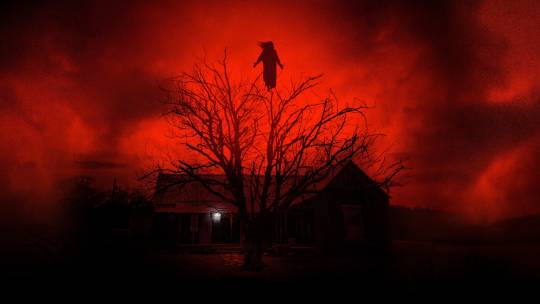
#9/ Relic:
Soon after Kay and her daughter Sam return to their remote family home following the disappearance of the family matriarch, the widowed Edna, they discover that something sinister has taken hold of both Edna and the house itself. Although Relic – which was co-produced by Jake Gyllenhaal and marked the feature directorial debut for Natalie Erika James – isn’t exactly offering up any enticing twists or salacious gore, or even a original concept for that matter, it relies on evoking dread and building tension to compel its audience to stay invested until the bitter end.
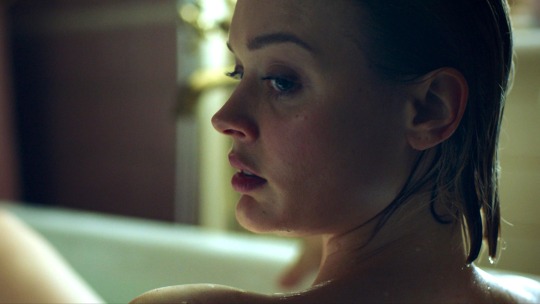
#8/ Amulet:
Taking its sweet time to unravel, Amulet is centered around Tomaz, an ex-soldier who is now homeless but is offered a place to stay at a decaying house in London, which is inhabited by a beautiful young woman named Magda and her dying mother. As the story moves along, we see that Tomaz is starting to develop feelings for Magda, who seems a bit…off. His feelings for her don’t wane even after Tomaz discovers that there’s something insidious going on in the attic of the house, where Magda’s mother is seemingly imprisoned. Toss in a suspicious nun and you’ve got yourself a creepy little film that seems to have fallen between the cracks.
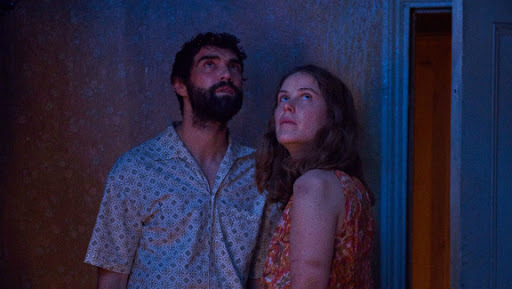
#7/ The Beach House:
One might argue that not a lot actually happens in The Beach House and that the payoff isn’t worth the investment, but if you go into this film with an open mind and zero expectations, you should at least be satisfied. Two troubled college students head to a deserted beach getaway to spend some time together, but end up struggling to survive alongside some unexpected guests as a mysterious infection disrupts their holiday. Although it is a slow build up to the film’s climax, it is a tense and intriguing ride along the way, as a series of unsettling events give way to an apocalyptic episode that feels almost like a throwback to the sci-fi films of the 1950s. Making his feature film directorial debut, Jeffrey A. Brown elicits with The Beach House those brooding existential thoughts that lay dormant in the deep boroughs of our minds.
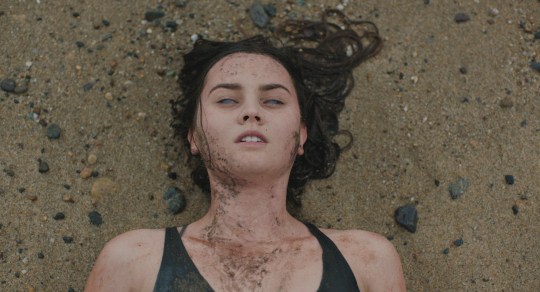
#6/ The Invisible Man:
There’s always an elevated risk when making a modern film based on an old story that has already been told through cinema numerous times before. The last time H.G. Wells’ 1897 novel The Invisible Man had been adapted by Hollywood was in 2000’s Hollow Man, which was panned by critics despite making a sizeable profit. The 2020 adaptation is far superior and is perhaps the best adaptation of Wells’ classic in any medium. Elizabeth Moss gives a stellar performance that draws real emotion, so that we agonize alongside her as she is essentially haunted by a relentless ghost hellbent on controlling every aspect of her life. We live in an era when technology has advanced enough to bring this 124-year-old story to life like never before, while a polished script and an exceptional lead performance gives The Invisible Man a deeper level of emotion and terror.
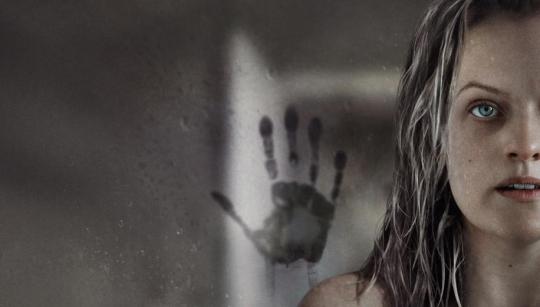
#5/ Saint Maud:
For most of Saint Maud it is unclear whether certain experiences are actually happening in reality for the main character or if it’s all simply in her head, as some sort of mental breakdown caused by a work-related tragedy. Maud is a young hospice nurse and a newly-converted Roman Catholic who suddenly becomes obsessed with “saving the soul” of the woman she is currently taking care of, Amanda, a hedonistic dancer with a chronic illness. Maud’s behaviour worsens, as does her mental state, as horrific scenes and visions make us question if she’s actually losing her mind or experiencing something beyond this world. Saint Maud is an A24 feature by the way, so that should be enough to know what you’re getting here in terms of quality.
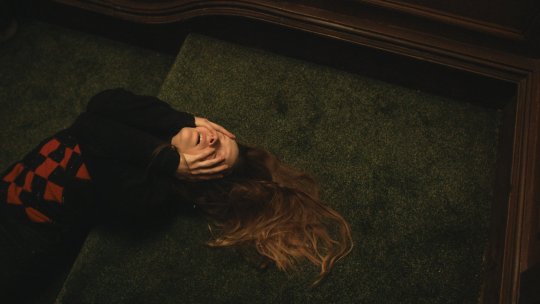
#4/ The Lodge:
Isolation is often embraced as a way to pad a horror film’s fear factor, and it works especially here in The Lodge, as a soon-to-be stepmom becomes stranded at a remote holiday home in the middle of winter with her fiance’s two children. The kids begin to untangle the dark past of their stepmom-to-be and a series of disturbing events transpire as their hope for survival fades. The Lodge is a dreary, atmospheric slow burn that leaves you somewhat unsettled. With its wintry backdrop, stylish sequences, and almost claustrophobic dread, the film doesn’t ever allow its audience to feel at ease for long, insisting that an underlying foreboding remain intact throughout. Although I found the ending somewhat disappointing, I immediately began to concoct a possible prequel that would delve into the backstory of the film’s lead character. One can hope.
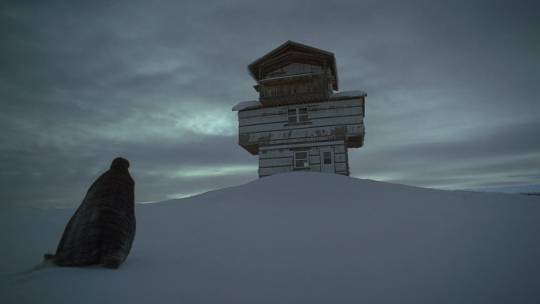
#3/ Host:
It’s increasingly difficult to be innovative and original when it comes to horror films these days, especially in the particular genre of so-called “found footage.” Rob Savage’s Host, however, comes off as something different, setting itself apart from most films in this realm in various ways. It centers around six friends who hold a séance via Zoom during a COVID lockdown, guided (at first) by a medium they hired. The séance then takes a dark turn and things soon escalate into madness. Sure, there are elements in Host that are prevalent in numerous horror films, but it uses a modern and topical way to implement them, while also refusing to overstay its welcome by cueing the credits less than an hour in. Overall, this film’s popcorn-and-Saturday-night-movie fun factor is why it ranks so high on this list.
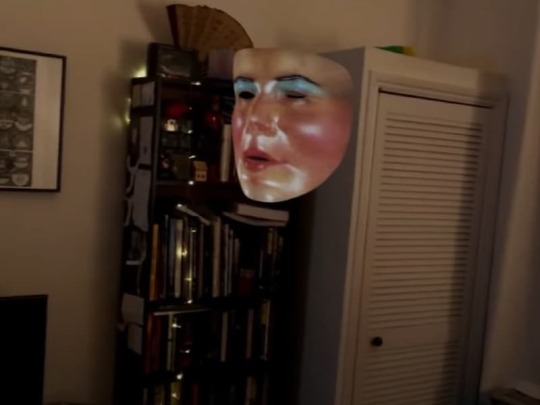
#2/ Possessor:
It’s always a treat to come across an original idea, especially when it’s within the horror realm, and Possessor is certainly unlike anything else I’ve seen in awhile. Andrea Riseborough plays an elite corporate assassin who uses brain-implant technology to take control over other people’s bodies in order to kill high profile targets, though with every mission she gets further and further away from her true self. With her latest possession, she becomes trapped in the mind of a man who threatens to obliterate her for good. It is a provocative vision by director-writer Brandon Cronenberg, who just so happens to be the son of legendary Canadian filmmaker David Cronenberg, and it serves as a disturbing piece of dystopian fiction that is even more frightening because it isn’t too far beyond belief.
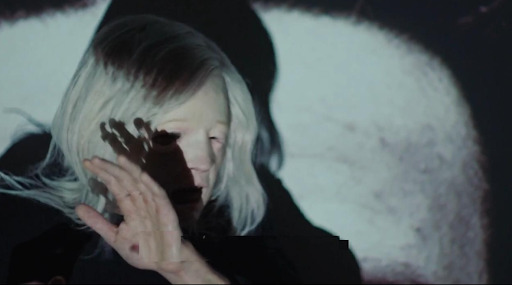
And because everyone else is doing it, here are five honorable mentions that narrowly missed the list:
- The Call
- Color Out of Space
- Don’t Listen
- The Mortuary Collection
- Porno
#1/ His House:
In addition to its emotional storytelling and genuine moments of terror, His House – from first-time director Remi Weekes – sheds a light on the plight of refugees in a way that feels both respectful and empathetic. After a Sudanese couple make a harrowing escape from their war-torn homeland, they are granted asylum in England, where they struggle to adjust and fit in. They are assigned a shabby house on the outskirts of London, where the couple begin to experience terrifying and unexplainable events. His House is built around a fresh concept, two fantastic leads, and some truly haunting imagery, and I wish that more horror directors would put as much effort into quality filmmaking as Weekes did here. If this is his first venture into feature filmmaking, I am excited to see what his future has in store.
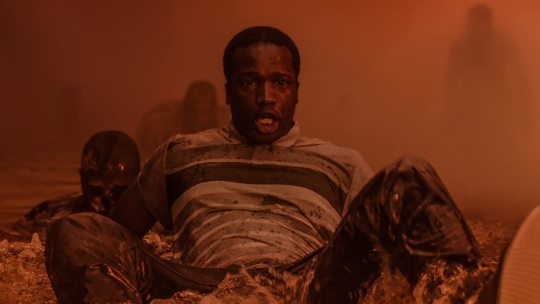
There you have it, my Top 10 favourite horror films of 2020. What did you think and were any of these titles on your own Top 10 list? Please tell me your thoughts and recommendations in the comments below.
youtube
5 notes
·
View notes
Text
Let’s make a secret
A/N: I’m just being an idiot. Let me have this. Anyways, a little Actor!Mark x Y/N for those of you who like rats. Angst and drunken seduction in this chapter. Also, Ethan get's fired for being an idiot butler.
Story: You and Mark use to be fast friend, but these days you barely talk to him anymore. Now with the Divorce approaching, Damien is worried for his dear friend and sends you to Markiplier Manor to keep him company. Mark doesn’t want to talk about life, preferring to just drink his troubled away with you. . .
The elections went well for Damien. Not only did he get the vast majority of the minority votes, but from others as well. It seemed to be quite a land slide of a victory for him, and you were proud to see how far he had come since the two of you met back in University. It was just him and another candidate now. If things go well, it looks like Damien will have another term to keep his Mayor title.
There was still a few months though, so you had to be at the top of your game to make sure he claims this victory as well. It’s what friends do. Sure, there was the controversy still going around since the last election, about how the two of you were using Damien to climb up in the ranks by giving him ‘special offers’. So many speculations arose, drugs, illegal trafficking, seduction. But no matter how ‘damnable’ the evidence was, It all fell flat and proven false in the end. Now people are just saying you both are secretly a couple. Granted, Damien is a handsome bastard. You can’t help but stare at him sometimes and smile. But he wasn’t your type. You and Damien preferred that the two of you stayed as fast friends til the end of your days, no matter what trials come before you. Nothing would shattered the bond you have.
It was another Sunday.
Or was it a Tuesday?
Doesn’t matter.
You were in your office, shuffling through some paper work when there was a light tapping on your door. listing your head up you noticed Damien peeking his head in. wit ha smile, you motioned him to come in, setting the papers to the side and giving him your full attention. You immediately knew something was wrong due to the look on his face, his gaze to the ground and his footing slower than usual. Damien was never forward when there was an incident that he had to address you about.
“Sorry, old friend. I certainly hope I’m not interrupting anything too critical towards your work.”
You shook your head, reassuring him that whatever was on his mind was far more important. This seemed to relive him by a small portion as he forced a smile and approached your desk.
“Good, good. That’s good to hear. Uhh, look, the reason I’m asking, and the reason why I’m here is because. . . Well . . .I need to ask a favor of you. It’s important.”
He had your attention before. But with that tone and those words? All your plans for the rest of the day can wait. you leaned forward form your seat a little, resting your hands on your desk as you waited for Damien to continue. He didn’t say anything at first, his gaze off to the side as the man went through his thoughts, possibly rethinking what he was going to request of you. Eventually he shook his head, returning his attention towards you and finally spoke.
“It’s Mark.” He muttered, now nervously fiddling with his cane in hand. “He’s going through a rather rough patch right now. I’d love to go see him, but. . .I’m not sure if I’m the right person he wants to see right now. I figured that maybe a familiar face and trouble maker might lighten up his spirits right now.”
Ah yes, Mark. How on earth could you forget such an egotistical man? You did appreciate the actor coming to Damien’s defense about the whole ‘Sex scandal’ incident. Possibly had enough of people spreading rumors about his childhood friend. Nice to know there was still some decency in him ever since he became a big shot actor.
Honestly, you were on the fence about this. But is was Damien asking for this huge favor. The man was far too kind. No matter how big the asshole was, Damien treated him like a brother.
Well, a brother-in-law at one point. . .
You started organizing your things and put them away, indicating to the Mayor that you would do this for him.
“Thank you, my friend’“ He breathed with relief, his smile sincere as he rests his hand on your shoulder. “I’m sure he needs the distraction right about now. Who knows, maybe reminiscing about your shenanigans will lighten his spirits. Just don’t get him into trouble. The ban against you two at the Cafe la Ritz is still holding strong.”
You still don’t regret that night either.
After you left work and freshened up a little at home, you make your way to Markiplier Manor. You tried to recall the location and roads to take in your head as you turned your headlights on, realizing how dark it was becoming. you’ve only ever been to that house once. Even then, you didn’t exactly go inside, rather you just dropped Damien and Mark off at the place. They offered for you to come inside, but something didn’t feel right as you looked at the place. Anything that seemed like it was pulling you in was something you avoided greatly. But at this point, you didn’t have a choice. It’s not like you were going to force Mark to hang out with you outside for the rest of the evening.
You did miss him though. Very much. You might not have known him since childhood like Damien, but the two of you were like Partners in crime, always getting into trouble back in your University days. You were surprised that neither of you got expelled after the gun powder indecent at the museum. Maybe because it didn’t ignite. So many close calls and late nights just causing trouble, sometimes sober, sometimes intoxicated. Honestly, Mark really helped you forget about the crushing stress of life. After graduation though, things seemed to drift between the two of you. There would be the occasional call here and there, but eventually things went quiet. Life just got too busy. You were in law, he was in Hollywood and in between was Damien trying to hold something together.
Eventually even Damien stopped talking about Mark and just focused on running the city.
Finally you pulled up to your destination.
You sat in your car for a moment, looking up at the extravagant house. That uneasy feeling never left, that pulling sensation sent shivers down your spine. It felt like looking at a casket for yourself. Taking in a deep breath, you get out of your car and make your way towards the entrance, each step feeling as though it wasn’t your own as you draw closer to the house. The door was intimidating somehow, it wasn’t that big in your opinion, but you were too uneasy to knock. non the less, you brought your hand up, bringing it into a light fist and gave a knock. Almost instantly the door opened as you were greeted by a rather pencil neck looking butler with glasses. He looked like the kind of guy who would drown you in a tub or poke a hold in a cardboard box while you’re in it.
“Bonjour!” He greeted with a smile, “Do you have an appointment?”
you probably should have asked Damien if he called ahead and let them know you were coming. You shook your head a little, just in case arrangements were not made and you didn’t wanna be caught lying.
“AWW! I’m so sorry. . . Whatever it is you are. But the master is not to be disturbed with non appointed guests.” He said in an obnoxious and overly fake accent.
Just then you heard a familiar tone, a bitter one as well coming from the room behind the butler, the voice getting louder as the person walked up to the door.
“Look, I don’t want to deal with any donations, salesmen or journalists right now! I just want to be left the fuck alon-!”
He caught glimpse of you just as you did of him. The raging voice that rang out seconds before halt the moment he recognized you, stepping closer before opening the door a little wider to get a better look at you. The man standing before you looked nothing like he did when you two last encountered. His eyes and cheeks were silken in a little, his hair unkempt, facial hair developing into nearly a beard and seemed to have lost some weight. As for his choice of clothes? Just as poor. Nothing more but a wrinkled red robe that’s barely tied on. His eyes scanned you just as much as you were him before he finally spoke.
“My God. You haven’t aged a day, you asshole.” Mark muttered, finally giving you a weak smile before gesturing you inside. “Come in, come in!” He enthusiastically offered. At least he was happy to see you, which was a relief. Walking in, the butler took your coat as you slipped out of it, looking around the rather nice layout before you.
The balcony over head strangely caught your eye. . .
“So! Wow. It’s been a long time, hasn’t it?” Mark spoke, snapping you out of your hazy thoughts and instantly towards him. You gave a nod and a warm smile as you took his hand, giving it a gentle squeeze and a shake to greet him more properly. “Ah, God, that was. . . 4 years ago, wasn’t it? Man, how time flies when you’re going through so much to what life chucks at ya, huh?” He spoke while guiding you towards one of the visitation rooms, “Sorry I’ve been so out of touch. You know how it is. You going the opposite direction of how we use to be in our youth, and me just making matters worse. Personally, I think I make it more interesting.” You couldn’t help but shake your head to this comment. Mark has always been the one to justify his actions, being rather narcissistic as ever. You didn't look down on him about, not this time. The way he was walking and forcing a smile to stay on his face, it was clear he was trying to hide away whatever emotional pain was eating away at him.
You only knew what you've read in the papers about it all. How the upcoming divorce was effecting his acting and all that. You still felt terrible about missing the wedding, though now it seemed kinda pointless to have such regret now that it didn't work out.
He leads you into one of the front rooms in this place (The man has about 5 possibly, just like his ovens), offering you have a seat on the couch the moment he sits as well. “Sorry about being such a mess. A call ahead of time would have been nice, BUT since it's you, I can forgive it this one time. I mean, how often do you even come by anymore? Just give a little heads up next time, alright?” You gave a nod in agreement and apology, not really needing to voice how you didn't mean to be an inconvenience with an unannounced visit. That was something you liked about him, he seemed to know what you were meaning to tell him with just simple little gestures, both him and Damien in fact. It's as if just looking into your eyes tells them everything that's on your mind, which was very helpful since you didn't like to speak up very often, only when greatly needed.
“Well, since you're here, we can catch up more properly and forget about life for a change. Would you like a drink? Ha! Stupid question. Of course you would! BUTLER!”
“BoNJoUR!” The rather obnoxious butler said, suddenly popping up from behind the sofa the two of you were sitting in.
“Yeah, yeah, shut up and get us a bottle of wine. Be snappy about it!”
“Bonjoooooooooour~!” He said as he slides his way out of the room.
You and Mark sit there for a moment, watching the heapass of a mean leave before tuning your attention back to one another.
“Anyways. . . It's so good to see you again, face to face.” Mark expressed in a sincere tone, taking your hand into his own and gave it a little pat. “Things have been pretty insane lately, so it's nice to have an old, non back stabbing friend in my midst.” That last part in his statement brought worry to grow in your chest, recalling how Damien assumed that Mark didn't want to see right now. Maybe there's been a bitter feud that occurred that you were not aware of.
Best to not let Mark known that this was Damien's idea.
You reassured Mark by giving his hand a gentle squeeze and a smile, scooting yourself a little closer to show you're comfort for being around him, despite the complete train wreck he was. Honestly, you've seen him look worse, like that time when the both of you got into a fight with a hand full of jocks. Those bruises stayed around for what felt like forever.
“BONjour!” The Butler finally arrived, shuffling his feet along the carpet s he approached the two of you, handing mark the bottle of wine as requested. The man looked at the bottle before looking back up to the butler with a look of grimace.
'. . . And GLASSES! Are we suppose to drink this with our god damn hands or what!?”
“OOF! Bonjour!” He spoke before dashing off in a rather odd manner.
You were rather taken back a bit by the sudden outburst from Mark. Normally he was level headed and was sly with his insults, doing such critical stabbing with his words with a smirk on his face. Not once have you witnessed him being so furious before. It was rather concerning, almost terrifying.
Mark noticed how uneasy you had become, seeming a little frantic as he placed the bottle of wine on the table and held your hand a little tighter. “Sorry! Sorry. It's difficult to deal with incompetent people these days. It's been nearly unbearable lately, you know.” You took note of this, how he became worried about scaring you away.
Mark was truly going through so much, wasn't he?
You tried to play it off like it was no big deal, giving a shrug and nod of understanding just as the butler returned with the glasses, setting them down on the table next to the wine bottle. With one last irritating 'Bonjour', the butler took his leave, allowing you and Mark to finally be alone.
The man reached over and popped open the bottle, pouring you a drink and handing the crystal glass to you. Graciously to took it from him, taking in the scent of the rich red drink before noticing how much more he was pouring into his own. Bringing your free hand forward, you tried to take tilt the bottle away from his glass. Mark pulled away from your hand and shook his head, not looking at you as he spoke. “Look. . . I know you're worried about me about the whole ordeal, and I appreciate you being here for me. But please, I don't want to talk or even think about it right now.” Saying this, Mark looked to you with pleading eyes, having another sober moment during this crisis was becoming far too much for him. As much as you didn't approve of heavy drinking with a broken heart, you couldn't help but feel a voice nipping a the back of your mind.
'He needs this. You're here after all. It's fine. . . I͍t᷾'s f̧ȋn̈e᷃.'
He's right. You both need to unwind anyways. You relaxed your posture as you raised your glass to him, Mark responding with a weary smile and tinked his glass against your before the both of you took a drink.
One glass of wine before two, three, four? Did the last one even count as a glass of wine since you never finished it and had more poured in? It should count as the same glass, right? The counting didn't matter as the night started to become a blur, a second bottle of wine being brought in and finished as well. Or was it a third bottle? You were not sure anymore, nor did you even care.
'Nothing wrong with letting go with an old friend. . .'
The night continued as the two of you became more rambunctious. Pointless jokes made and laughed at, tossing random items in the fire just to see how it would burn, flipping the table over, watching Mark fire the butler, you flipping him off after he drinks from your glass. Mark throwing an empty bottle of wine across the room, him with his arms wrapped around your neck as he sobs against your shoulder, you trying to stay up on the sofa only to collapse on the floor, another bottle of wine was ordered, both of you forgot that the butler was fired. Even on the floor the room continued to spin, vaguely seeing the actor crawling towards you and resting his head on your chest.
Everything felt warm, possibly from the fireplace, possibly from the body heat from the man who's weight pinned you to the floor, maybe it was the taste of wine that was still on your lips you tasted, maybe the taste was from his kiss, the firm hands that began to trail down your waist didn't hurt at all.
'See? It's not that bad. . . Not. That. B̠a̞d̅.̖ .ͅ "̂
(To be continued)
150 notes
·
View notes
Text
The Little Things Reminds Us Why We’re Drawn to Charismatic Serial Killers
https://ift.tt/2MCEa7V
This The Little Things analysis contains spoilers. Read our spoiler-free review here.
The Little Things can be seen as a tainted police procedural with its murky ambiguity and troubling ending. But it’s also the story of a man for whom the allure of a charismatic serial killer goes too far. After all, serial killers make up less than one percent of homicides but they average a double-digit percentage of Hollywood crime films, and probably a majority of prison fan mail. What is it about these one-percenters we love so much?
Directed by John Lee Hancock, the supposed sociopath in The Little Things is Albert Sparma, a drifter who works as a repairman. Jared Leto is certainly magnetic in the part, serving Sparma up with a now-stereotypical “charismatic serial killer” vibe. But the Oscar-winning actor also brings an ambiguous energy to the part, suggesting he may merely be a serial killer groupie.
Albert Sparma is a self-identifying true crime afficionado and has taken his fanboy fancy so far as to actually confess to a murder he didn’t commit. That could be seen as some dangerous roleplay or surveying a battle ground for future maneuvers.
Sparma is perfectly thrilled when he’s pulled into the interrogation room to face off against Det. Jimmy Baxter (Rami Malek). He luxuriates in the tension, and loves the décor. He stands in vast contrast to Stan Peters (Frederick Koehler), quite possibly the actual murderer, who’d earlier responded to the room with an almost claustrophobic paranoid mania.
But Peters is not the charismatic type. Leto’s Albert, meanwhile, has a bad boy quality which is just irresistible. At least it is to Denzel Washington’s measured portrayal of Kern County Deputy Sheriff Joe “Deke” Deacon, who sees the makings of a young Ted Bundy in the suspect. Recall that in Joe Berlinger’s bloodless feature film, Extremely Wicked, Shockingly Evil and Vile, Zac Efron plays Bundy with an abundance of charm. The film came out amid a glut of documentaries about one of the most well-known serial killers from the late 20th century, and Twitter exploded with posts about how attractive Bundy was.
Albert Sparma could have been his biggest fan.
Leto doesn’t bring the clean-cut, all-American hunk to his serial killer. He’s the rebel. His hair hangs so long, he has to move it out the way when he cooks. Sparma goes to strip clubs before cruising the strip. He wins a drag race with Deke while still in park. He plays so many mind games with Baxter his head explodes.
Dennis Lynn Rader, aka the BTK Killer, taunted the police by sending letters describing the details of his crimes. That’s an old trick though, going all the way back to Jack the Ripper, who also wrote to Scotland Yard about his alleyway antics. Son of Sam, the Lipstick Killer, the Golden State Killer, even the Axeman of New Orleans dropped personal notes on current events to the authorities. The Zodiac Killer wrote his in code.
They also sent letters to the newspapers. Sparma collects clippings and is up on all the true crime literature. Some people are attracted to serial killers out of a necessity to understand their acts. It is outside their reality, and it is even a coping mechanism. News reports explain how, but they don’t explain why such unimaginable crimes can be committed. They want to know how someone can go so dark. If Sparma is truly just a “confessor,” as even Det. Baxter finally accepts, that confession shows one aspect of the depths of his kind of obsession.
Some serial killer followers might be drawn out of the curiosity of how it feels to take a human life.
The body count in The Little Things is only four when Deke first double parks at the station. It grows as the case draws attention. Real-life serial killers like Jeffrey Dahmer became celebrity monsters because of the attention they got from law enforcement and the media, and a collective curiosity for the macabre makes them larger than life. John Wayne Gacy committed his atrocities in a Pogo the Clown suit. And Sparma’s repairman overalls are a little baggy.
While Bundy was on trial, representing himself, he proposed to a woman, who not only accepted but married the convicted murderer, and conceived a daughter with him. Even in prison, Bundy received marriage proposals and love letters, as did Dahmer, Richard Ramirez, Chris Watts, and Charles Manson. Some may be drawn to the serial killer hoping to spark some transformation in an irredeemable beast; others might be prone to Hybristophilia, otherwise known as “Bonnie and Clyde Syndrome;” and some are just drawn toward the bright light of fame in any shade.
In Oliver Stone’s Natural Born Killers, Woody Harrelson’s Mickey Knox is a mass murderer, not a serial killer, by strict definition. Nonetheless, when he and his wife Mallory (Juliette Lewis) are walked up the stone steps to the courthouse, they are surrounded by adoring fans waving signs like “Kill Me Mickey.” Stone was making pointed social commentary in a fictional film, but his scenario was all too real.
Read more
Movies
Best Serial Killer Movies of the ’90s Ranked
By David Crow
Movies
Seven: The Brilliance of David Fincher’s Chase Scene
By Ryan Lambie
The Little Things is not based on a true story. It goes back to a screenplay Hancock wrote in 1993, which was too dark for Steven Spielberg. For inspiration, Hancock had to look no further than California serial killers in the 1980s like the Grim Sleeper and Randy Kraft.
Written before the glut of serial killer movies took hold in the 1990s, The Little Things is similar to Alfred Hitchcock’s Psycho (1960) and the then-recent Jonathan Demme’s The Silence of the Lambs (1991) in that they are psychological thrillers, as opposed to the proto-slasher Leatherface in Tobe Hooper’s The Texas Chainsaw Massacre (1974). Yet all three of those films, from Norman Bates to Hannibal Lecter, were inspired by Ed Gein, who confessed to killing two people as well as digging up corpses from local cemeteries in the 1950s. Gein became internationally famous after being profiled in the book Psycho by Robert Bloch.
It’s no wonder an anonymous drifter might find comfortable skin to wear while traversing a sad, sick world. Sparma certainly walked the walk, and was up on his psychopathic patter.
“They are so friendly and so kind and very solicitous at the beginning of our work together,” forensic psychiatrist Helen Morrison wrote in her 2004 book My Life Among the Serial Killers. “They’re charming, almost unbelievably so, charismatic like a Cary Grant or a George Clooney.”
Sparma does everything short of asking Baxter for an autograph during their first meeting. Serial killer fans have been known to spend hundreds of dollars for a lock of a murderer’s hair. John Schwenk, a true crime afficionado from Pennsburg, Pennsylvania, has gotten follicles, false teeth, and even dental floss from serial killers on death row. He is a collector of murderabilia, and his portfolio includes a sketch of a skull by Richard “The Night Stalker” Ramirez and a portrait by John Wayne “The Killer Clown” Gacy.
A Texas senator named John Cornyn began pushing a bill to ban the sale of crime-related materials in 2007. It must have sounded like a good idea to the federal government. They pulled in $232,246 auctioning off the Unabomber’s belongings in 2011. Rodney Alcala, who was sentenced to death in California for five murders, put himself up for a romantic racket bid on a September 1978 installment of The Dating Game.
The Little Things reaches a satisfyingly ambiguous conclusion. The best evidence in the case is a boxful of newspaper clippings. Are they forensically clean trophies of past dark victories, or are they a scrapbook from one of the biggest true crime fanatics on the planet?
Charismatic serial killers are a movie stereotype now. Leto helps twist this trope by letting his character buy so completely into it we don’t know if he’s become one or is merely a victim.
cnx.cmd.push(function() { cnx({ playerId: "106e33c0-3911-473c-b599-b1426db57530", }).render("0270c398a82f44f49c23c16122516796"); });
The post The Little Things Reminds Us Why We’re Drawn to Charismatic Serial Killers appeared first on Den of Geek.
from Den of Geek https://ift.tt/36sg9aC
3 notes
·
View notes
Text
LOOK! TV: TURN ON OR TURN OFF?
September 7, 1971
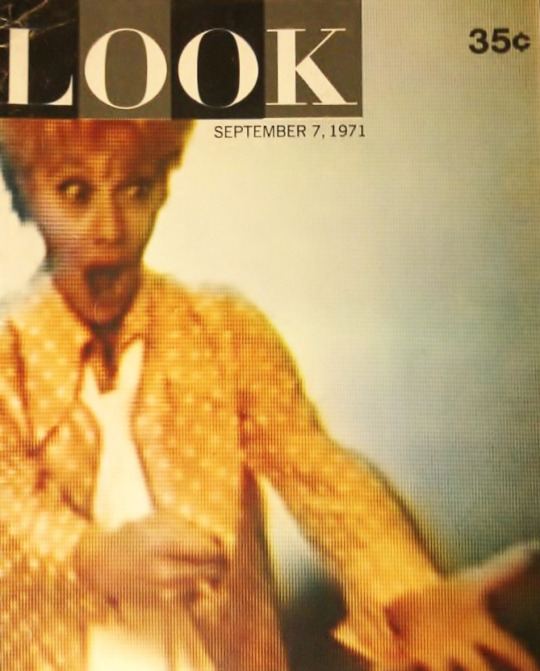
The September 7, 1971 issue of LOOK Magazine (volume 35, number 18) dedicated their entire issue to the medium of television. Inside, there is a feature titled “Lucille Ball, the Star That Never Sets...” by Laura Bergquist on page 54.
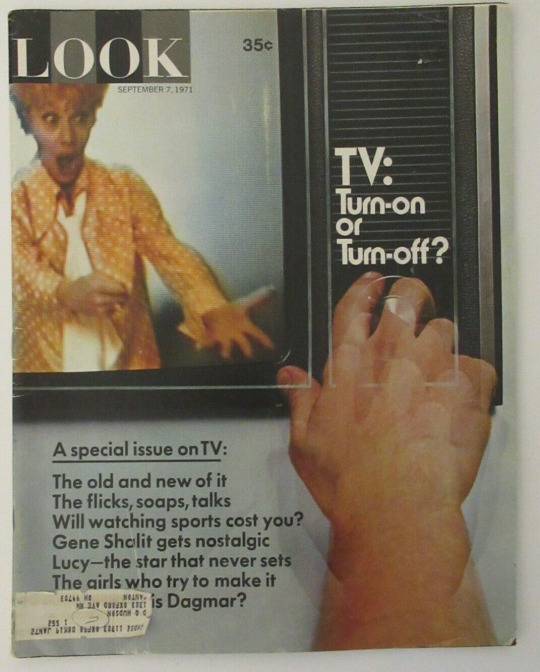
The photograph on the cover is slightly distorted to give it the look of an image through a TV screen. The shot was taken by Douglas Bergquist in January 1971.

The issue presents a variety of viewpoints about the state of television. Is it ‘tired’ or is there an infusion of new energy to take it into the new decade? John Kronenberger writes an article that asks if cable television is the future. Hindsight tells us that it was not only the future, but is now the past.

“Lucille Ball, the Star That Never Sets...” by Laura Bergquist.

Bergquist first interviewed Lucille Ball in 1956 for the Christmas issue of Look.
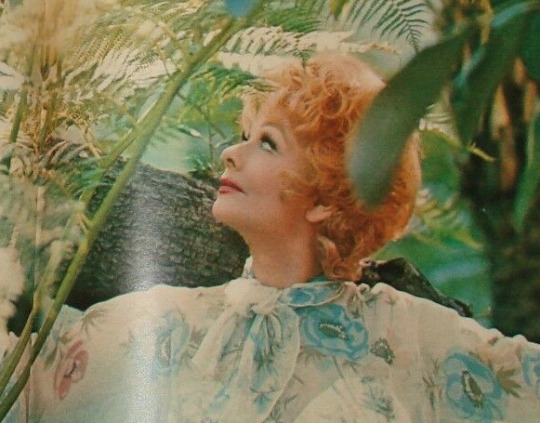
The photograph is by Douglas Kirkland, a Canadian-born photographer, who not coincidentally, also took the photograph used on the cover. This shot was taken in the garden of Ball’s home in June 1971. At age 24, Kirkland was hired as a staff photographer for Look magazine and became famous for his 1961 photos of Marilyn Monroe taken for Look's 25th anniversary issue. He later joined the staff of Life magazine.
Bergquist launches the article talking about her friend Sally, who is besot with watching Lucille Ball reruns, preferring Lucy over the news. Under the headline, she sums up the purpose of her interview: “Sorry, Sally. But Lucy is a serious, unfunny lady. So how come she’s a top clown of the fickle tube for twenty years, seen at home 11 times weekly and in 77 countries?”
LUCILLE BALL: THE STAR THAT NEVER SETS...
(Lucille Ball’s quotes are in BOLD. Footnote numbers are in parentheses.)
My neighbor Sally, nine, turns out to be a real Lucy freak. Though she likes vintage-house-wife I Love Lucy best, she'll watch Lucille Ball 11 times a week, if permitted. That's how often Madame Comedy Champ of the Tube, come 20 years this October, can be caught on my local box. Ten reruns, plus the current Here's Lucy on Monday night, CBS prime time. Friends, that's 330 weekly minutes of Lucy, which should be rank overexposure. Did you know that even the U.S. man-on-the-moon walkers slipped in ratings, second time around?
Quel mystery. Variety last fall announced that old-fashioned sitcoms and broad slapstick comedy are passé, given today's hip audiences. With one big exception - Lucy. When the third Lucy format went on in '68, reincarnating Miss Ball as a widowed secretary (with her real-life son, Desi Jr., now 18, and Lucie Jr., 20), Women's Wear Daily said not only were the kids no talent, but the show was "treacle." "One giant marshmallow," quoth the Hollywood Reporter, "impeccably professional, violence-free, non-controversial . . . 100% escapism."
Miss Ball: "Listen, that's a good review. I usually get OK personal notices, but the show gets knocked regular."
So why does Sally, like all the kids on my block, love slapstick, non-relevant Lucy? "Because she's always scheming and getting into trouble like I do, and then wriggling her way out of it." A 44-year-old Long Island housewife: "Of course I watch. I should watch the news?" When the British Royal Family finally unbent for a TV documentary, what was the tribe watching come box-time? Lucy, over protests from Prince Philip. (1)
"I've been a baby-sitter for three generations," says Miss Ball briskly. "Kids watch me during the day [she outpulls most kiddy shows]. Women and older men at night. Teen-agers, no. They look at Mod Squad. Intellectuals, they read books or listen to records.... You know I even get fan mail from China?" MAINLAND CHINA? "Hong Kong, isn't that China?" No. "Where is it anyway?"
The Statistics on the Lucy Industry are numbing. In recent years, she has run in 77 countries abroad, including the rich sheikhdom of Kuwait, and Japan, where, dubbed in Japanese yet, she's been a long-distance runner for 12 years. Where are all those funny people of yesteryear - Jackie Gleason, the Smothers Brothers, Sid Caesar, the Beverly Hillbillies - old reliables like Ed Sullivan, Red Skelton? Gone, all gone, form the live tube - except for reruns dumped by sponsors, out of fashion, murdered in the ratings.
Even this interview is a rerun. Fifteen years ago, I sat in Miss Ball's old-timey movie-star mansion in Beverly Hills, wondering how much longer, oh Lord, could Lucy last? She has a different husband, a genial stand-up comic of the fast-gag Milton Berle school, Bronx-born Gary Morton, 49. He replaced Desi Arnaz, her volatile Cuban spouse (and costar and partner) of 20 years, who lives quietly in Mexico's Baja California, alongside a pool shaped like a guitar, with a second redhead wife. "Ever been here before?" asks Gary, now her executive producer, who's brightened the house decor. "Used to be funeral-parlor gray, right?"
Otherwise, the lady, like her show, seems preserved in amber. Though newly 60, she could be Sally's great-grandmother. Of a Saturday, she's unwinding from a murderous four-day workweek. Her pink-orange-fireball hair is up in rollers. Her black-and-blue Rolls-Royce, inherited from her friend, the late Hedda Hopper, is parked in the driveway. But in attitude and opinion, she comes across Madame Middle America, despite the shrewd show-biz exterior. Good egg. Believer in hard work, discipline, Norman Vincent Peale. Deadeye Dickstraight, she talks astonishingly unfunny - about Vietnam, Women's Lib, about which she feels dimly, marriage to Latins, books she toted up to her new condominium hideaway in Snowmass, Colo. "Snow" is her new-old passion, a throwback to her small-town Eastern childhood. For the first time in family memory, this lifelong workhorse actually relaxed in that 9,700-foot altitude for four months this year, learning to ski, reading Pepys, Thoreau, Shirley MacLaine's autobiography, "37 goddamned scripts, and all those Irvings" (Stone, Wallace, etc.). She had scouted for a mountain retreat far away from any gambling. Why? Is she against gambling? "No, I'm a sucker. I can't stay away from the tables."
From yellowing notes, I reel off an analysis by an early scriptwriter. Perhaps she comes by her comic genius because of some "early maladjustment in life, so you see commonplace things as unusual? To get even, to cover the hurt, you play back the unhappy as funny?"
Forget any deep-dish theorizing. "Listen, honey," says Miss B, drilling me with those big blue peepers, "you've been talking to me for four, five hours. Have you heard me say anything funny? I tell you I don't think funny. That's the difference between a wit and a comedian. My daughter Lucie thinks funny. So does Steve Allen, Buddy Hackett, Betty Grable."
BETTY GRABLE THINKS FUNNY? "Yeah. Dean Martin has a curly mind. oh, I can tell a funny story about something that happened to me. But I'm more of a hardworking hack with an instinct for timing, who knows the mechanics of comedy. I picked it up by osmosis, on radio and movie lots [she made 75 flicks] working with Bob Hope, Bert Lahr, the Marx Brothers, the Three Stooges - didn't learn a thing from them except when to duck. Buster Keaton taught me about props. OK, I'm waiting."
Well, I hedge, I caught Miss Ball in a few funny capers on the Universal lot this week. Like one day, in her star bungalow, she throws a quick-energy lunch in the blender - four almonds, wild honey, water, six-year-old Korean ginseng roots, plus her own medicine, liver extract. "AAAGH," she gags, then peers in the mirror at her hair, which is a normal working fright wig, "Gawd," she moans, "it looks as if I'd poked my finger into an electric-light socket!" No boffo line, but her pantomimed horror makes me laugh out loud. Working, she is fearless - dangling from high wires, coping with wild beasts. She talks of animals she's worked with, chimps, bears, lions, tigers. "I love 'em all, especially the chimps, but you can't trust their fright or panic. Like that baby elephant who gave a press job to a guest actress." (2) What's a press job? "Honey, once an elephant puts his head down, he keeps marching, right through walls." Miss Ball puts her own head down, crooks an arm for a trunk, and voila, is an elephant. Funny as hell. So off-camera she's no great wit, but then is Chaplin?
Four days a week, through the Thursday night filming before a live audience, she labors like some hungry Depression starlet. Monday a.m., she sits at the head of a conference table, lined by 12 staffers, editing the script. Madame Executive Tycoon in charge of everything, overseeing things Desi used to do. Also the haus-frau, constantly opening windows for fresh air and emptying ashtrays. She wears black horn-rims, three packs of ciggies are at the ready. "Do I have to ask for a raise again?" she impatiently drills the writers, "I've done that 400 times." "QUIET!" she yells during rehearsal, perching in a high director's chair, a la Cecil B. DeMille. "Isn't somebody around here supposed to yell quiet?" She frets about the new set. "Those aisles - they're a mile and a half wide. What for?" The audience is too far away, she won't get the feedback from their laughs are her life's blood. (Once I hear Gary Morton on the phone, in his British-antiqued executive office, saying: "We need your laugh, honey. Go down to the set and laugh; that's an order.")
That physical quality about her comedy, a la the old silent movies or vaudeville - which were the big amusements of her youth - seems to transcend any language. (A Moscow acting school, I was told, shows old Lucy clips as lessons in comic timing.) So what did she learn from that great Buster Keaton?
"At Metro, I kept being held back by show-girl-glamour typing. I always wanted to do comedy. Buster Keaton, a friend of director Eddy Sedgwick, spotted something in me when I was doing a movie called DuBarry - what the hell was the name? - and kept nagging the moguls about what I could do. Now a great forte of mine is props. He taught me all about 'em. Attention to detail, that's all it is. He was around when I went out on a vaudeville tour with Desi with a loaded prop." What's that? "Real Rube Goldberg stuff. A cello loaded with the whole act - a seat to perch on, a violin bow, a plunger, a whistle, a horn. Honey, if you noodge it, you've lost the act. Keaton taught me your prop is your jewel case. Never entrust it to a stagehand. Never let it out of your sight when you travel, rehearse with it all week." Ever noodge it? "Gawd, yes. Happened at the old Roxy in New York. I was supposed to run down that seven-mile aisle when some maniac sprang my prop by leaping out and yelling 'I'm that woman's mother! She's letting me starve.'" What did you do? "Ad-libbed it, and I am one lousy ad-libber."
After 20 years, isn't she weary of playing the Lucy character? "No, I'm a rooter, I look for ruts. My cousin Cleo [now producer of Here's Lucy] is always prodding me to move. She once said Lucy was my security blanket. Maybe. I'm not erudite in any way, like Cleo. But why should I change? Last year was big TV relevant year, and I made sure my show wasn't relevant. Lucy deals in fundamental, everyday things exaggerated, with a happy ending. She has a basic childishness that hopefully most of us never lose. That's why she cries a lot like a kid - the WAAH act - instead of getting drunk."
Aha! Is Lucy the guileful child-woman, conniving forever against male authority - whether husband or nagging boss - particularly FEMALE? ("None of us watch the show," sniffed a Women's Libber I know, "but she must be an Aunt Tom." Still, I ponder, hasn't that always been the essence of comedy, the little poor-soul man - or woman - up against the biggies?)
"I certainly hope so. You trying to con me into talking about Women's Lib? I don't know the meaning of it. I never had anything to squawk about. I don't know what they're asking for that I don't have already. Equal pay for equal work, that's OK. The suffragettes rightly pressed a hard case - and when roles like Carry Nation come along, they ask me to play them, perhaps because I have the physical vitality. But they're kind of a laughingstock, aren't they? Like that girl who gave her parents 40 whacks with an ax? Didn't Carry Nation ax things, was she a Prohibitionist or what?" (3)
She'd just said nix to playing Sabina, in the movie of Thornton Wilder's The Skin of Our Teeth. Why? "I didn't understand it." She turned down The Manchurian Candidate for the same reason. "Got that Oh Dad, Poor Dad script the same week and thought I'd gone loony." If she makes another movie, she'll play Lillian Russell in Diamond Jim with Jackie Gleason, "a nice, nostalgic courtship story that won't tax anyone's nerves." (4)
Is Miss Ball warmed by the comeback of old stars in non-taxing Broadway nostalgia shows like No, No, Nanette? (5)
"Listen, I studied that audience. I saw people in their 60's and 70's enjoying themselves. That had to be nostalgia. The 30's and 40's smiled indulgently, that Ruby Keeler is up there on the stage alive, not dead. For the below 30's, it's pure camp. I don't put it down, but it’s not warm, working nostalgia, but the feeling 'Ye gods, anything but today'
"Maybe I'm more concerned about things that I realize. I told you politics is definitely not on my agenda - I got burned bad, back in the '40's signing a damned petition as a favor. (6) Just say the word 'politician,' and I think of chicanery. Too many subversive angles today. But I must be one of millions who are so fed up, depressed, sobbing inside, about the news...the atrocities, the dead, the running down of America. You can't obliterate the news, but the baddest dream is that you feels so helpless.
"I was sitting in this very chair one night, flipping the dial, and came to Combat! There were soldiers crouching in bushes, a helicopter hovering overhead. Nothing happening, so I make like a director, yelling, 'Move it! This take is too LONG!' It turned out to be a news show from Vietnam. That shook me. There I was criticizing the director, and real blood was dripping off my screen... That drug scene bugs me. It's ridiculous, self-indulgent. We're supposed to be grateful if the kids aren't on drugs. They're destroying us from within, getting at our youth in the colleges. OK, kids have to protest, but how can they accomplish anything if they're physically shot?
"One of the reasons I'm still working is that people seem grateful that Lucy is there, the same character and unchanging view. There's so much chaos in this world, that's important. Many people, not only shut-ins, depend on the tube, too much so - they look for favorites they can count on. Older people loved Lawrence Welk. They associated his music with their youth. Now he's gone. It's not fair. (7) They shouldn't have taken off those bucolic comedies; that left a big dent in some folks' lives. Maybe we're not getting messages anymore from the clergy, the politicians, so TV does the preaching. But as an entertainer, I don't believe in messages.
"Some Mr. Jones is always asking why am I still working - as if it were some crime or neurotic. OK, I'll say it's for my kids. But I like a routine life, I like to work. I come from an old New England family in which everyone worked. My grandparents were homesteaders in New York and Ohio. My mother worked all her life - during the Depression in a factory."
What does she think of the new "relevant" comedy like All in the Family? "I don't know... It's good to bring prejudice out in the open. People do think that way, but why glorify it? Those not necessarily young may not catch the moral. That show doesn't go full circle for me."
Full circle?
"You have to suffer a little when you do wrong. That prejudiced character doesn't pay a penance. Does he ever reverse a feeling? I'm for believability, but I'm tired of hearing 'pig,' 'wop,' 'Polack' said unkindly. Me, I have to have an on-the-nose moral. Years ago, the Romans let humans be eaten by lions, while they laughed and drank - that was entertainment. But I’m tired of the ugly. Fred Astaire and Ginger Rogers dancing, that's my idea of entertainment. Anything Richard Burton does is heaven. Easy Rider scared me at first because I knew how it could influence kids. But at least that movie came full circle. They led a life of nothing and they got nothing. Doris Day, I believe in her. Elaine May? A kook, but a great talent. Barbra Streisand? A brilliant technician."
On her old ten-minute daily interview radio show, (8) she once asked Barbra, like any star-struck civilian: How does it feel to be only 21, a big recording artist and star of the Broadway hit Funny Girl? "Not much," said Barbra. "That cool really flustered Lucille. It violated everything she believes in," says cousin Cleo Smith, who grew up with Miss B in small-town Celoron, N.Y. "For her, nothing ever came easy. She didn't marry until she was 30, or become a really big star until she was 40. She's still so hard on herself, sets such rigorous standards for herself as an actress and parent. She honestly believes in all the old maxims, that a stitch in time saves nine, etc. She's literal-minded, a bit like Scarlett O'Hara. Does what needs doing today, and to hell with tomorrow."
Her self-made wealth a few years ago was reckoned at $50 to $100 million. After her divorce, she reluctantly took over the presidency of the Desilu studio and sold it six years later to the conglomerate Gulf & Western for nearly $18 million. Does that make her the biggest lady tycoon in Hollywood? (The 179 original I Love Lucy reruns now belong, incidentally, to a CBS syndicate; her second Lucy Show, to Paramount. She owns only the current Here's Lucy - OK, go that straight?)
"Hah! Like Sinatra, I owe about three and a half million bucks all the time. That figure is ridiculous. All my money is working. I lost a helluva lot in the stock market last year and haven't recouped it. It's an illusion that people in show biz are really rich. The really filthy rich are the little old ladies in Boston, the old folks in Pasadena, who've had dough for years and haven't been seen since."
The divorce from Desi Arnaz can still set her brooding. "It was the worst period of my life. I really hit the bottom of despair - anything form there on had to be up. Neither Desi nor I has been the same since, physically or mentally, though we're very friendly, ridiculously so. Nobody knows how hard I tried to make that marriage work, thinking all the trouble must be my fault. I did everything I could to right that ship, trotting to psychiatrists. I hate failure, and that divorce was a Number One failure in my eyes... Anything in excess drives me crazy. He'd build a home anyplace he was, and then never be around to enjoy it. I was so idealistic, I thought that with two beautiful babies, and a beautiful business, what more could any man want? Freedom, he said, but he had that. People don't know what a job he did building that Desilu empire, what a great director and brilliant executive he was yet he let it all go....Maybe Latins have an instinct for self-destruction..."
Was that the conflict, a Latin temperament married to an old-fashioned American female? "It has a helluva lot to do with getting into it and getting out. The charm. But they keep up a big facade and don't follow through. No, the machismo didn't bother me, I like to play games too.
"Desi and I had made an agreement that if either of us wanted to pull out of Desilu, the other could buy. I wanted to go to Switzerland with the kids, anywhere to run away, but he wanted out. The I found out that for five years, our empire had taken a nose dive, and if I wanted to get my money back, I had to rebuild it first. For the first time in my life, I was absolutely terrified - I'd never run any show or a big studio. When I came back from doing the musical Wildcat on Broadway, I was so sick, so beat, I just sat in that backyard, numb, for a year. I'd had pneumonia, mononucleosis, staph, osteomyletis. Lost 22 pounds. Friends told me the best thing I could do physically, psychologically, was go back to work, but could I revive Lucy without Desi, my old writers, the old crew?"
You didn't like being a woman executive? "I hated it. I used to cry so much - and I'm not a crier - because I had to let someone go or make decisions I didn't understand. There were always two sides to every question, and trouble was I could see both sides. No one realizes how run-down Desilu was. The finks and sycophants making $70,000 a year, they were easy to clean out. Then during the CBS Jim Aubrey regime, I couldn't sell the new pilots we made - Dan Dailey, Donald O'Connor, Ethel Merman. I couldn't sell anything but me." (9)
Was it tough to be a woman bossing men? "Yeah. It puts men in a bad spot. I could read their minds, unfortunately, wondering who is this female making this decision, not realizing that maybe I'd consulted six experts first. I'm all wrong as an executive, I feel out of place. I have too many antennae out, I'm too easily hurt and intimidated. But I can make quick surgical incisions. I've learned that much about authority - give people enough rope to hand themselves, stand back, let them work, but warm them first. Creative people you have to give special leeway to, and often it doesn't pay off. Me, I'm workative, not creative. I can fix - what I call 'naturalize.' I'm a good editor, I can naturalize dialogue, find an easier way to do a show mechanically.
But I didn't make the same marriage mistake twice. Gary digs what my life is, why I have to work. We have tranquility. We want the same things, take care of what we have."
She shows me Gary's dressing room, closets hung with shirts and jackets - by the dozen. "My husband is a clothes and car nut, but it's a harmless vice. Better than booze or chasing women, right?" (His cars include a 1927 Model T Ford, a Mercedes-Benz 300 SL, an Astin Martin, a Rolls-Royce convertible.)
"Anyone married to me has an uphill climb. Gary and I coped by anticipating. We knew we should be separated eight, nine months a year, so he tapered off his act, found other thing to do - making investments, building things. He plays the golf circuit, Palm Springs, Pebble Beach, and tolerantly lets me stay at Snowmass for weeks. Sun just doesn't agree with me. He didn't come into the business for five years. I didn't want to put him in a position in which he would be ridiculed. I could tell that he was grasping things - casting, story line. I said, 'You've been a big help to me. You should be paid for it.' "
On a Friday night, I dine with the Mortons. Dinner is served around 6:30, just like in my Midwest hometown. Lucille is still fretting about this week's show - "over-rehearsed; because there were so many props, the fun had gone out of it." Gary, just home from unwinding his own way - golfing with Milton Berle, Joey Bishop - asks if I'd like something to drink with dinner? Coke or ginger ale? "No? I think we have wine." No high living in this house, but the spareribs are superb. "Laura asked me an interesting question," he tells his wife. "Like isn't there a conflict when a husband in the same business - comedy - marries a superstar? I told her I'd never thought of it before."
They met the summer when Lucille was rehearsing Wildcat, and he was a stand-up comic at Radio City Music Hall, seven days a week. "We both came up the hard way," he says. "I got started in World War II, clowning for USO shows. I've been in show biz for 30 years and can appreciate what she goes through. Lucy can't run company by herself. Maybe with me around, when she walks on the set, her mind is at peace. I pop in from time to time, on conferences, rehearsals. I can tell from her if things are going well, if the laughter is there. She's a thoroughbred, very honest with me, a friend to whom I can talk about anything. She never leaves me out of her life; that's important for a man. Do you know how many bets were lost about our marriage lasting? It's been nearly ten years now, and I've slept on the couch only once."
Past dinner, we adjourn promptly to the living room, and a private showing of Little Murders. It's not a pretty movie of urban American life, and Lucy talks back indignantly to the screen. (10) The flick she rally like was George Plimpton's Paper Lion, with the Detroit Lions, which she booked under the illusion it was an animal picture. "At the end, 12 of us here stood up and cheered, and I wrote every last Lion a fan note. You know that picture hardly made a dime?"
On a house tout, I'd noted the Norman Rockwell and Andrew Wyeth albums in the living room, and a memo scotch-taped to her bathroom wall: "Get Smart with N.V.P."
N.V.P. Is that Norman Vincent Peale, her old friend and spiritual mentor? "Yes. He marred me and Gary. I still adhere to his way of thinking because he preaches a day-to-day religion that I can understand. Something workable, not allegory. Like how do you get up in the morning and just get through the day?
"Dr. Peale taught me the art of selfishness. All it means is doing what's right for you, not being a burden to others. When I was in Wildcat, he dropped around one night saying, 'I hear you're very ill, and working too hard.' 'Work never hurt anybody,' I protested. But he reminded me I had two beautiful children to bring up, and if I was in bad shape, how could I do it? I've learned you don't rake more leaves than you can get into the wheelbarrow. I've always been moderate, but I was too spread around, trying to please too many people. You don't become callous, but you conserve your energies."
What about her kids? Passing a newsstand, I'd noted a rash of fan mags blazoned with headlines about Desi Jr., something of a teen-age idol, and at 18 a spitting image of old pop. (A rock star at 12, he'd recently garnered very good notices indeed for a movie role in Red Sky at Morning.) "Why Lucille Ball's Son Is So Bitter About His Own Mother," read the El Trasho covers. "Patty Duke Begs Desi Jr. To Believe Her: 'You Made Me Pregnant.' " Does the imbroglio bother this on-the-nose moralist?
"I worked for years for a quiet personal life and to have to personally impinged on, with no recourse, is hard. I brought Patty to the house, feeling very maternal about her, saying look at this clever girl, what a big talent she is. Now, I can thank her for useless notoriety. She's living in some fantastic dreamworld, and we're the victims of it. Desi being the tender age of 17 when they met, she used him. She hasn't proved or asked for anything. I asked Desi if he wanted to marry her and he said no. My daughter helped outfit the baby, which Patty brought to the house, but did she ever say thank you?
"Desi's going to CIA this fall." Not the CIA? No, the new California Institute of the Arts, where he'll study music. "Yes, he's very much like his father, too much sometimes - I just hope he has Desi's business acumen. I'm glad he didn't choose UCLA or Berkeley or a school full of nonconformists. Lucie just now wants marriage and babies - maybe she'll go on to college later.
"I took the kids out of school deliberately. Desi was at Beverly Hills High, Lucie at Immaculate Heart."
Why? "I didn't like the scene - it was the usual - pregnant girls, drugs." That goes on at Immaculate Heart? Sure. "A lot of girls who boarded there were unhappy misfits, and Lucie was already working in the nunnery. All the friends she brought home were the rejected. I'm that way myself."
Did they mind, well, your stage-managing their lives? "No, they were as sick of that weird high school scene as I was. I made them a proposition - told them to think it over for a month, while I was in Monaco. Do you want to be on the show? I told them the salary would be scale, that most would be put in trust. They'd be tutored and not able to graduate with their classes. They both thought they were going to the coast, but working with a tutor, they really got turned on by books for the first time. They wanted to be in show business, and I wanted to keep an eye on them."
Of course her show is nepotism, she grants. "Cleo thought a long time before becoming the producer, wondering if it wasn’t overdoing family. Nobody seems to be suffering from it, I told her." Thursday night show time is like a tense Broadway opening night. Gary Morton, in stylish crested blazer, warms up the audience, heavy with out-of-town tourists. "Lucy started out with another fellow, can't remember his name.... What is home without a mother? A place to bring girls." Lucille bursts out onstage, exuding the old MGM glamour, fireball hair ablaze, eyelashes inches long, in aquamarine-cum-rhinestone kaftan. "For God's sake," she implores, "laugh it up! We want to hear from you... Gary, have you introduced my mom?" Indeed he has. Loyal, durable, 79-year-old Desiree "DeDe" Ball, her hair pink as Lucille's, has missed few of the 409 Lucy shows filmed to date, and is on hand as usual with 19 personal guests. Gary also asks for big hands for Cleo, and her husband Cecil Smith, TV critic for the LA Times, who has also appeared on the show. (11)
One day Desi Jr. wanders on the set, just back from visiting his father in Mexico. He'd gone with Patty Duke and the baby. The young man does have Latin charm, and apparently talent. I ask him a fan-mag query: Is it rough to be the spin-off of such famous show-biz parents?
"Well, I grew up with kids like Dean Martin, Jr., and Tony Martin, Jr., and we had a lot in common." What? "We all had houses in Palm Springs." Any generational problem with Mom? "She's found the thing she's best at, and sticks to it. As long as she has Snowmass, she has an escape, some reality. I realize she lives half in a man's world, and that must be tough on a woman. My father - he worked hard for years, and then he'd had it. This is silly, weird, he felt. He aged more in ten years than he had in 40. I'm like him. I feel life is very short. He's had major operations recently, and he's changed a lot."
Patty Duke is six years older than Desi Jr., paralleling the six-year age gap that separated parents Lucy and Desi. "Patty is a lot like my mother, the same drive, and strong will, a perfectionist...But I'm never going to get married. Marriage is unrealistic, expecting you to devote a whole life unselfishly to just one person. Do you know people age unbelievably when they marry? From what I've seen, 85 percent of married couples are miserable; 14 percent, just average; one percent, happy." (12)
His mother's own childhood, in little Celoron, an outspring of Jamestown, N.Y., was oh-so-different from her kids'. "She was always a wild, tempestuous, exciting child," say Cleo, "doing things that worried people, plotting and scheming, though she knew she'd get in trouble." Interesting, because that's one basic of the Lucy format, Miss B forever finagling second bananas like Vivian Vance into co-trouble. "One summer, she conned me into running away. It was only to nearby Fredonia, but in her sneaky way she really wanted to catch up to a groovy high school principal who was teaching there. He played it very cool, calling Mom and telling her we were staying overnight in a boarding house. On his advice, when we got home, DeDe acted as if we hadn't been away. That devastated Lucille, no reaction, nothing."
The classic Lucy story line also has her conniving against male authority, whether husband or boss, now played by Gale Gordon. "I need a strong father or husband figure as catalyst. I have to be an inadequate somebody, because I don't want the authority for Lucy. Every damned movie script sent me seems to cast me as a lady with authority, like Eve Arden or Roz Russell, but that's not me.
"No, I don't remember my own father," says Miss Ball. "He was a telephone lineman who died of typhoid at 25, when I was about three. I do remember everything that day, though. Hanging out the window, begging to play with the kids next door who had measles... The doctor coming, my mother weeping. I remember a bird that flew in the window, a picture that fell off the wall.
"My brother Fred [who was born after her father's death] was always very, very good. He never did anything wrong - he was too much to bear. I was always in trouble, a real pain in the ass. I suppose I wasn't much fun to be around." To this day, says Cleo, Lucille suspects Fred is her mother's favorite, even though DeDe has devoted her whole life to this daughter.
Family ties were always fierce-strong. After her father's death, "We lived with my mother's parents, for a while. Grandpa Hunt was a marvelous jack-of-all-trades, a woodturner, eye doctor, mailman, bon vivant, hotel owner. [And also an old-fashioned Populist-Socialist.] He met my grandmother, Flora Belle, a real pioneer woman and pillar of the family, when she was a maid in his hotel. She was a nurse and midwife, an orphan who brought up four pairs of twin sisters and brothers all by herself. He took us to vaudeville every Saturday and to the local amusement park. When Grandma died at 51, all us kids had to pitch in, making beds, cooking.
"Yeah, I guess I am real mid-America, growing up as a mix of French-Scotch-Irish-English, living on credit like everyone else, paying $1.25 a week to the insurance man, buying furniture on time. But it was a good, full life. Grandpa took us camping, fishing, picking mushrooms, made us bobsleds. We always had goodies. I had the first boyish bob in town and the first open galoshes.
"My mother then married Ed Peterson, a handsome-ugly man, very well-read. He was good to me and Freddy but he drank too much. He was the first to point out the magic of the stage. A monologist came to town on the Chautauqua circuit. He just sat onstage with a pitcher of water and light bulb and made us laugh and cry for two hours. For me, this was pure magic. When I was about seven, Ed and mother moved to Detroit, leaving me with his old-fashioned Swedish parents, who were very strict. I had to be in bed at 6:30, hearing all the other kids playing outside in the summer daylight. Maybe it wasn't that traumatic, but I realize now it was a bad time for me. I felt as if I'd been deserted. I got my imagination to working, and read trillions of books."
The adult Lucille, talking to interviewers, used to go on and on about her "unhappy" childhood, little realizing that she was reflecting on her mother, to whom she is passionately devoted. "Just how long do you think you lived with the Petersons?" asked DeDe one day in a confrontation. "Three YEARS? Well I tell you it was more like three weeks."
"I left home at 15, much too early, desperate to break into the big wide world. Looking for work in New York show biz was ugly, without any leads or friends or training other than high school operettas and plays and Sunday school pageants. I was very shy and reticent, believe it or not, and I kept running home every five minutes. I got thrown in with older Shubert and Ziegfeld dollies and, believe me, they were a mean, closed corporation. I don't understand kids today who get easily discouraged and yap about doing their own thing. Don't they know what hard work is? Where are their morals? I always knew when I did wrong, and paid penance."
Yet she was venturesome enough to sit in on some recent Synanon group-therapy sessions for drug addicts. "They wanted me to raise some money, and I wanted to find out what it was about. The games were fascinating, wonderful, until I couldn't take it any more. The other participants kept bugging me: What are you here for? Are your children drug addicts? I had to start making up problems."
For two decades, she's been risking her neck in those murderous ratings, outlasting long-ago competitors like Fulton Sheen, and now up against such pleasers as pro football and Rowan and Martin. (13)
Suppose the ratings drop, what would she do?
No idea. "Might take a trip on the Inland Waterway form Boston to Florida. In my deal with Universal, I can make specials, other movies, TV pilots. I wouldn't have to ski 'spooked' at Snowmass." What's that? "Honey, I have to be careful. If I break a leg 500 people are out of work. (14) I'd be happy in some branch of acting with some modicum of appreciation. Listen, it never occurred to me, in life that I'd fail ever, because I always appreciated small successes. I never had a big fixed goal. When I was running Desilu, it drove me wild when people asked, 'Aren't you proud to own the old RKO studio where you once worked as a starlet?' What $50-a-week starlet ever walked around a lot saying, 'I want to own this studio'?
"I don't know what you've been driving at, what's your story line? But it's been interesting, talking."
FOOTNOTES: HINDSIGHT IS 20/20
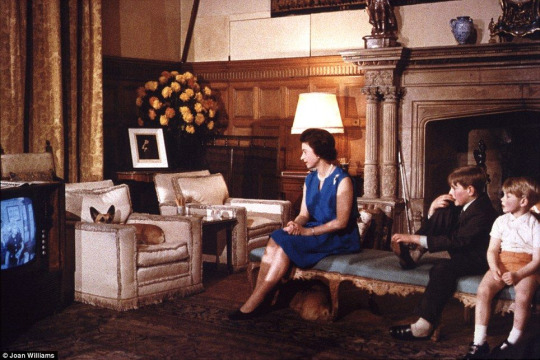
(1) This refers to a rare 1969 BBC documentary about Britain’s royal family that gave the public an inside look at the life of the Windsors. In one scene, the family was watching television, and on the screen was “I Love Lucy”, much to the chagrin of Prince Philip. Queen Elizabeth and Prince Philip were mentioned on the series, especially in the episode “Lucy Meets the Queen” (ILL S5;E15).
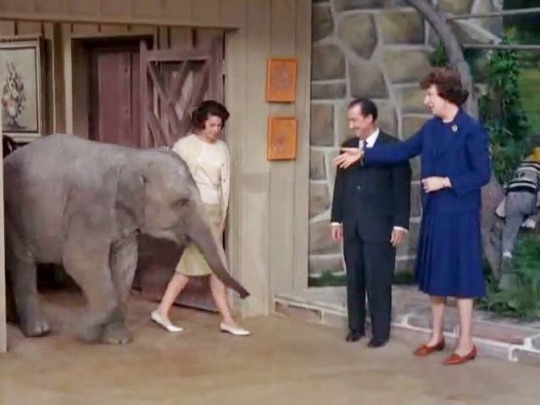
(2) Lucy is referring to a 1967 episode of “The Lucy Show” titled “Lucy The Babysitter” (TLS S5;E16) in which Lucy Carmichael babysits three rambunctious chimps for their parents, played by Jonathan Hole and Mary Wickes. In the final moments of the show, Wickes reveals a fourth sibling - a baby elephant! The animal went wild and pushed Wickes (what Ball described as a “press job”) into one of the prop trees. The trainer had to physically subdue the elephant to get it away from Wickes, who injured her arm. The final cut ends with the entrance of the baby elephant.

(3) Lucy is conflating (probably intentionally) the stories of real-life prohibitionist Carrie Nation (1846-1911), who famously hacked up bars and whisky barrels with an axe, and Lizzie Bordon (1860-1927), who famously hacked up her parents with an axe. (Photo from the 1962 TV special “The Good Years” starring Lucille Ball and Henry Fonda.)

(4) There was never a film version of Thornton Wilder’s play Skin Of Our Teeth which was on Broadway in 1942 starring Tallulah Bankhead as Sabina, the role offered to Ball. There were several television adaptations; one in Australia in 1959; one in England the same year starring Vivian Leigh as Sabina; one in the USA in 1955 starring Mary Martin (above) as Sabina; and a filmed version of a stage production starring Blair Brown as Sabina in 1983. Although it is possible that Lucille Ball might have been considered for the role of the sexy housemaid Sabina in 1955, the article says that the role was “just” offered to her, so it probably refers to a 1971 project that never materialized. Wilder’s story tracks a typical American family from New Jersey from the ice age through the apocalypse.

(5) In 1971, there was a popular revival of the 1925 musical comedy No, No, Nanette on Broadway. The cast featured veteran screen star Ruby Keeler and included Helen Gallagher (playing a character named Lucille, coincidentally), Bobby Van, Jack Gilford, Patsy Kelly and Susan Watson. Busby Berkeley, nearing the end of his career, was credited as supervising the production, although his name was his primary contribution to the show. The 1971 production was well-reviewed and ran for 861 performances. It sparked interest in the revival of similar musicals from the 1920s and 1930s. The original 1925 cast featured Charles Winninger, who played Barney Kurtz, Fred’s old vaudeville partner on “I Love Lucy.” In that same episode (above), they sing a song from the musical, "Peach on the Beach” by Vincent Youmans and Otto Harbach. Like the revue in the episode, the musical is set in Atlantic City, New Jersey.
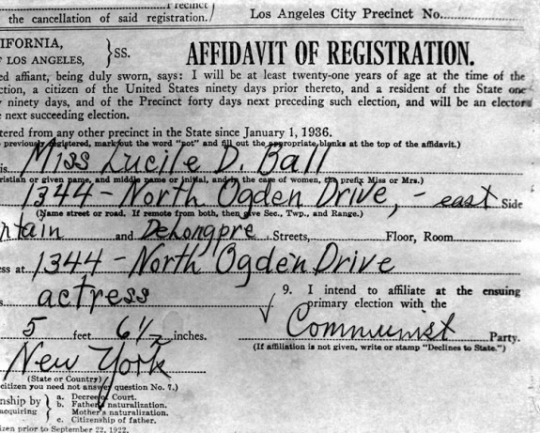
(6) Lucy is referring to her 1936 affidavit of registration to join the Communist Party. Lucille said she signed it to appease her elderly grandfather. The cavalier act caught up with Ball in 1953, when zealous red-hunting Senator Joe McCarthy tried to purge America of suspected Communists. Although many careers were ruined, Ball escaped virtually unscathed.
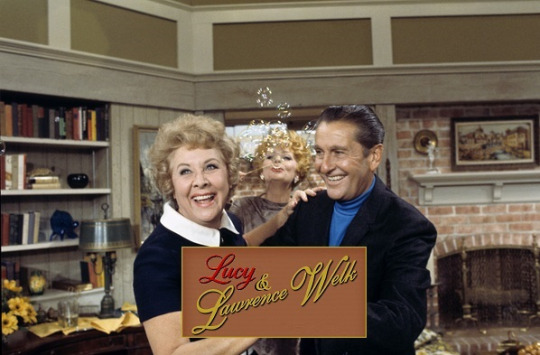
(7) The popular big band music series “The Lawrence Welk Show” (1955) was unceremoniously canceled in 1971 by ABC, in an attempt to attract younger audiences. What Lucy doesn’t mention is that four days after this magazine was published, the show began running brand new shows in syndication, which continued until 1982. Welk, despite not being much of an actor, played himself on “Here’s Lucy” (above) in January 1970.
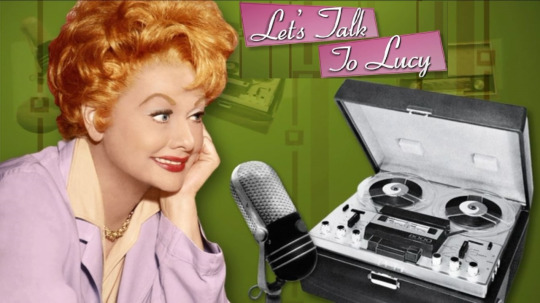
(8) “Let’s Talk To Lucy” was a short daily radio program aired on CBS Radio from September 1964 to June 1964. Most interviews (including Streisand’s) were spread over multiple installments.

(9) To showcase possible new series (pilots) Desilu and CBS aired “Vacation Playhouse” (1963-67) during the summer when “The Lucy Show” was on hiatus. This would often be the only airing of Lucy’s passion projects. “Papa GI” with Dan Dailey as an army sergeant in Korea who has his hands full with two orphans who want him to adopt them. The pilot was aired in June 1964 but it was not picked up for production. “Maggie Brown” had Ethel Merman playing a widow trying to raise a daughter and run a nightclub which is next to a Marine Corps base. The pilot aired in September 1963, but went unsold. “The Hoofer” starring Donald O’Connor and Soupy Sales as former vaudevillians aired its pilot in August 1966. No sale!

(10) Little Murders (1971) was a black comedy based on the play of the same name by Jules Feiffer. The film is about a young nihilistic New Yorker (Elliott Gould) coping with pervasive urban violence, obscene phone calls, rusty water pipes, electrical blackouts, paranoia and ethnic-racial conflict during a typical summer of the 1970s. Definitely not Lucille Ball’s style of comedy! Paper Lion (1968) was a sports comedy about George Plimpton (Alan Alda) pretending to be a member of the Detroit Lions football team for a Sports Illustrated article.
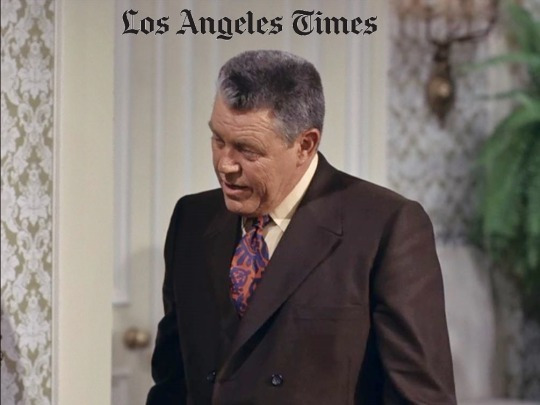
(11) Cecil Smith appeared in “Lucy Meets the Burtons” (HL S3;E1) in 1970 playing himself, a member of the Hollywood Press with a dozen other real-life writers. The casting was a way to get better coverage of the episode (featuring power couple Dick Burton, Liz Taylor, and her remarkable diamond ring). The gambit worked and the episode was the most viewed of the entire series.

(12) Desi Jr.’s 1971 views on marriage did not last. He married actress Linda Purl in 1980, but they divorced in 1981. In October 1987, Arnaz married dancer Amy Laura Bargiel. Ten years later they purchased the Boulder Theatre in Boulder City, Nevada and restored it. They lived in Boulder with their daughter, Haley. Amy died of cancer in 2015, at the age of 63.
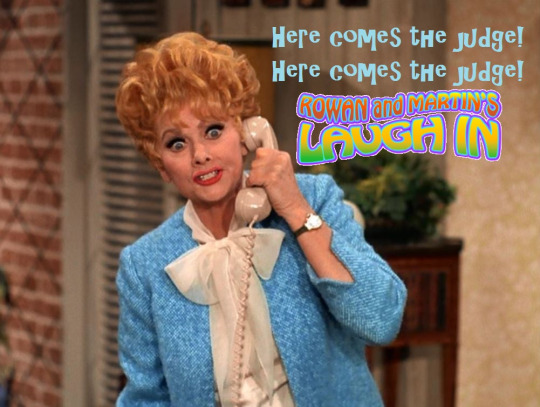
(13) From 1952 to 1957, Catholic Bishop Fulton J. Sheen hosted the inspirational program “Life Is Worth Living”, winning an Emmy Award in 1953, alongside winners Lucille Ball and “I Love Lucy.” “Here’s Lucy” was programmed up against “Monday Night Football” on ABC and “Rowan and Martin’s Laugh-In” on NBC. Instead of ignoring her competition, Ball embraced them by featuring stories about football and incorporating many of the catch phrases and guest stars from “Laugh-In.”

(14) Lucy spoke too soon! Just a few months after this interview was published Ball did indeed have a skiing accident in Snowmass and broke her leg. With season five’s first shooting date approaching, Ball was faced with either ending the series or re-write the scripts so that Lucy Carter would be in a leg cast. She chose the latter, even incorporating actual footage of herself on the Snowmass slopes (above) into "Lucy’s Big Break” (HL S5;E1).

Elsewhere in the Issue...
“This Was Our Life” by Gene Shalit includes images of Lucille Ball in the collage illustration.
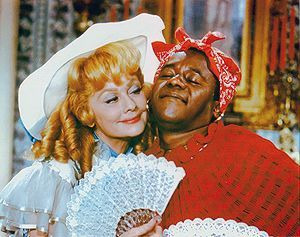
A week after this issue of Look hit the stands, the fourth season of “Here’s Lucy” kicked off with guest star Flip Wilson and a parody of Gone With the Wind. Three days later, Ball guest-starred on his show.

Not to be outdone, LOOK’s rival LIFE also devoted an entire issue to television, on news stands just three days later.
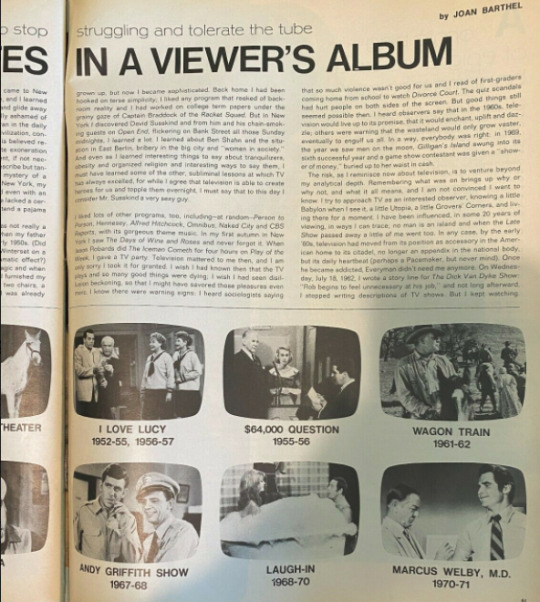
Naturally, “I Love Lucy” didn’t escape mention! I’m not sure why the show’s run is bifurcated: 1952-55, 1956-57. Actually, the show began in 1951 and ran continually until 1957.

Click here for more about Look, Life and Time!
#Look Magazine#1971#Lucille Ball#Here's Lucy#Lucy#Laura Bergquist#Douglas Kirkland#Desi Arnaz Jr.#Cleo Smith#Cecil Smith#Little Murders#Flip Wilson#Snowmass#Lawrence Welk#Let's Talk To Lucy#Mary Martin#Skin of Our Teeth#I Love Lucy#No No Nanette#The Good Years#The Lucy Show#Mary Wickes#Royal Family#Paper Lion#Television#TV Guide
7 notes
·
View notes
Link
Nine films into its now 21 entries, the Marvel Cinematic Universe found its groove — albeit with caveats. The series’ long-running imbalance is owed to both occasionally muddled character arcs and often-incoherent worldviews. For the most part, the MCU captures the texture of America’s post-9/11 military politics, though it rarely has anything of significance to say about it. This superficiality has been a sticking point on the Road to Endgame, even for some of the series’ very best entries.
Marvel’s backdrops are politically charged, if not outright political, but the way they’re framed tends to act in contention with the stories being told. Captain America: The Winter Soldier falls unequivocally on the “incoherent worldview” side of things, however it succeeds more than its predecessors thanks to its clarity of character. It’s arguably the best Marvel movie till date, combining slick action, taut structure and sincere performances, though it’s hardly immune to the series’ political pitfalls. After all, it was the third Marvel film to be partially funded by the Pentagon.
A Shield From Criticism
Marvel’s incongruous political outlook is owed, in major part, to the series starting out as government propaganda. Like hundreds of Hollywood films, early Marvel movies like Iron Man and Iron Man 2 were produced with U.S. military assistance, which means they were also locked-in to scripts approved by the Department of Defense.
The Avengers was eventually turned down for this assistance, though it certainly attempted to appease the Pentagon at some point during its production (U.S. military equipment ended up in the film regardless). And while Iron Man 3 seemingly alluded to Marvel’s disagreement with the D.O.D — “There’s no politics here… There’s no Pentagon. It’s just you and me.” — the studio resumed its relationship with the U.S. government for its Captain America sequel, a partnership that continued until as recently as this year’s Captain Marvel.
Several scenes in Captain America: The Winter Soldier were filmed at an Army base near Cleveland, Ohio according to the Pentagon’s Hollywood database (obtained via SpyCulture). In return, the Army received “a significant portrayal in the film” at “no cost to the government.” A likely condition of this partnership, as with the Pentagon’s production agreements on Iron Man and Iron Man 2, was Marvel ensuring none of this portrayal was negative.
The result of this dynamic is a film, and a series, that only pays lip-service to questioning authority. The stories take aim at fictionalized structures, while real wings of U.S. government and their military policies remain unchallenged, despite them forming a major part of the fictional backdrop.
The real-world military presence in these films is treated as a desirable norm, while the real-world problems they cause or exacerbate are passed off to fictional villains. In the process, the heroes ultimately fight to maintain the status quo, wherein U.S. militarism is framed as the more peaceful alternative. The Avengers never truly rattle the cage, not in any way that would create long-lasting change.
The Winter Soldier’s critique of drone warfare and data mining is the closest Marvel has come to speaking truth to American power, though it stops short at every turn. In prior entries like the Iron Man films (not to mention Captain America’s own debut), the villains usually mirror some element of real-world authority, but they’re made palatable to all audiences once they’re stripped of real-world ideologies.
The film attempts to use specific U.S. military methods (and their justifications) to grounds its character-centric story. However, it also continues the series’ wishy-washy approach to power by letting real-world structures off the hook, shifting the blame for those methods to fictional entities (One has to imagine the film’s D.O.D. overseers preferred the responsibility for overtly American problems be directed elsewhere).
The result, while most certainly an exciting action-adventure, is a movie whose own story is frequently undercut. It teeters on the edge of substance, yet it feels constantly hesitant.
The Big Reveal
Understanding The Winter Soldier requires talking about its midpoint, a reveal that brings its themes into focus. Captain America/Steve Rogers (Chris Evans) and Black Widow/Natasha Romanoff (Scarlett Johansson) are fugitives from S.H.I.E.L.D., which has been recently compromised. This military outfit had a nebulous international allegiance in The Avengers, though its visual coding (and its Washington DC headquarters) make it closer to a defense branch of the U.S. government.
After tracking down a mysterious data point, Rogers and Romanoff discover, embedded within S.H.I.E.L.D.’s very origins, the digitized consciousness of Arnim Zola (Toby Jones), one of Rogers’ World War II adversaries. The real-life Operation Paperclip, which folded former Nazi scientists into American intelligence, resulted in Nazi science division H.Y.D.R.A spreading fascist ideology within American ranks. As it stands, H.Y.D.R.A. and S.H.I.E.L.D. are effectively one. They plan to kill anyone who might oppose them, though their impetus for doing so is un-specific; their ideology, once again, is “power” in the abstract.
In previous Marvel efforts, the villains’ plans often had a political façade, with something cartoonishly sinister beneath the surface. Obadiah Stane sought power in the form of Iron Men, the Abomination sought it in the form of big, green muscles, and Red Skull wanted power in the form of, well, magical powers. The Winter Soldier however, flips the script in that regard, retrofitting ridiculous-sounding comic elements like secret super-Nazis, a man in a computer, and even Batroc The Leaper in order to make them part of a larger political fabric. Here, the villains are driven by both in-universe history as well as political ideology, or at least something resembling the latter.
Rather than infiltrating America from the outside, H.Y.D.R.A. has grown to become part of American governance over the decades. It is made up of American Senators and military personnel, from fighter pilots all the way to a member of the World Council. The Winter Soldier comic’s Aleksander Lukin, a former K.G.B.-operative and modern-day avatar for the Red Skull’s consciousness, shows up here as Alexander Pierce (Robert Redford), a stripped-down American vessel for H.Y.D.R.A.’s ideas. In the film, Pierce has always been an American, and his methods are drawn from America’s real-world foreign and domestic policies. “Zola’s Algorithm,” the computer program that tells Pierce whom to target, is threat analysis through data-mining, not unlike the N.S.A. secrets exposed by Edward Snowden.
“Project Insight,” the algorithm’s next phase, involves drone ships picking off targets who pose a threat to H.Y.D.R.A.’s global security — or as Steve Rogers describes it, “Holding a gun at everyone on Earth and calling it protection.” Functionally, these crimes are a carried out by members of the American military, working in the shadows, killing and spying with impunity, causing Rogers and Romanoff to realize they might not work for the good guys after all.
On the other hand, revealing that covert Nazi infiltrators have been pulling the strings all along also waters down the narrative. The dilemma our heroes face is one of misguided allegiance, but this reveal makes it far too easy for them to come to terms with their mistakes. Rather than having to confront their place in a corrupt power structure, that structure is revealed to have secretly been another organization altogether, one that Rogers and Romanoff have never perceived as being the good guys. In effect, there’s little need for them to introspect since it turns out they were duped. The film thus avoids all questions of America’s role in these distinctly American methodologies.
H.Y.D.R.A., while descended from Nazis, have little connection to Nazi ideology. Instead, the organization seeks to bring the world under singular rule, without any further framing as to what they stand for — or against. For a second time in the series, a Captain America film responds to the question of who would be most vulnerable to the villains’ ideology with the same disappointing answer: America, and America only.
In Captain America: The First Avenger, H.Y.D.R.A.’s immediate target was America, the military superpower, rather than any specific group persecuted by the Nazis. In The Winter Soldier, the result is similar; the immediate targets of “Project Insight” are mostly Americans on domestic soil. It’s a horrifying image from an American standpoint, though as a metaphor, it’s largely disconnected from its real-world equivalent. In either case, scrubbing the villains of specific outlooks means the characters opposing them needn’t have specific allegiances. This Captain America neither fought for persecuted peoples during World War II, nor does he fight for victims of America’s preemptive drone strikes in the Middle East. He only seems to fight for Americans.
While Rogers battles a military apparatus meant to mirror that of America, the fight ultimately comes down to a simplistically framed binary (despite the film’s musings about the world being more complicated than it once was). Captain America, draped once more in his red, white and blue, attempts to stop the Nazis — one of the unambiguous villains of World War II — from carrying out mass murder. It doesn’t hold much weight as a metaphor, even in the context of post-2016 America, whose own Nazi resurgence is tied to unconfronted elements of white supremacy in American life and government.
In The Winter Soldier, American governance is implicitly framed as the peaceful aspiration. Its disruptors — both now and throughout history — are fictitious foreign infiltrators, who secretly perpetrate America’s real-world crimes. “Coups, assassinations and proxy wars? Couldn’t be me.”
What else is one to expect from a film, even a great one, made in part to promote the U.S. military machine?
8 notes
·
View notes